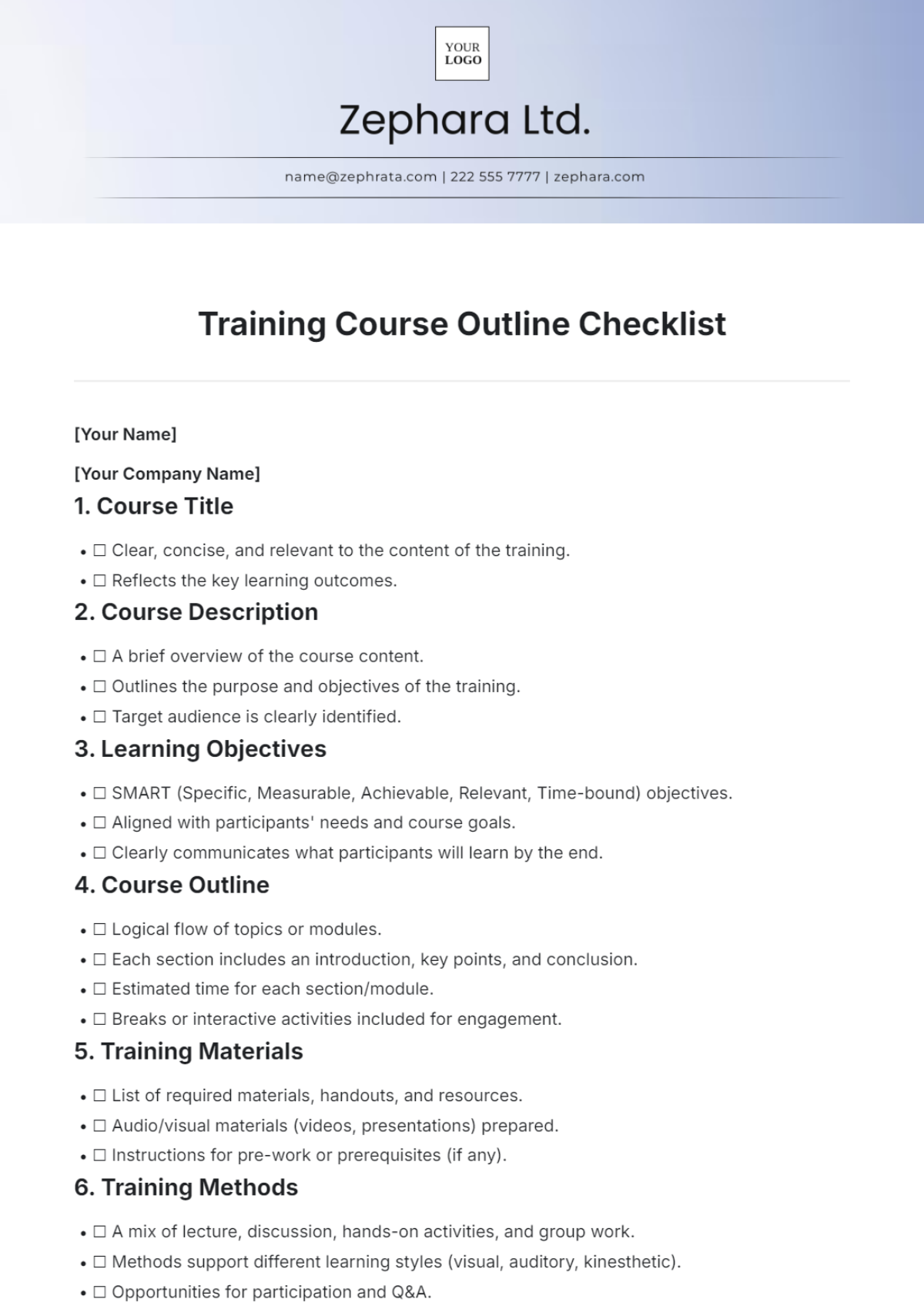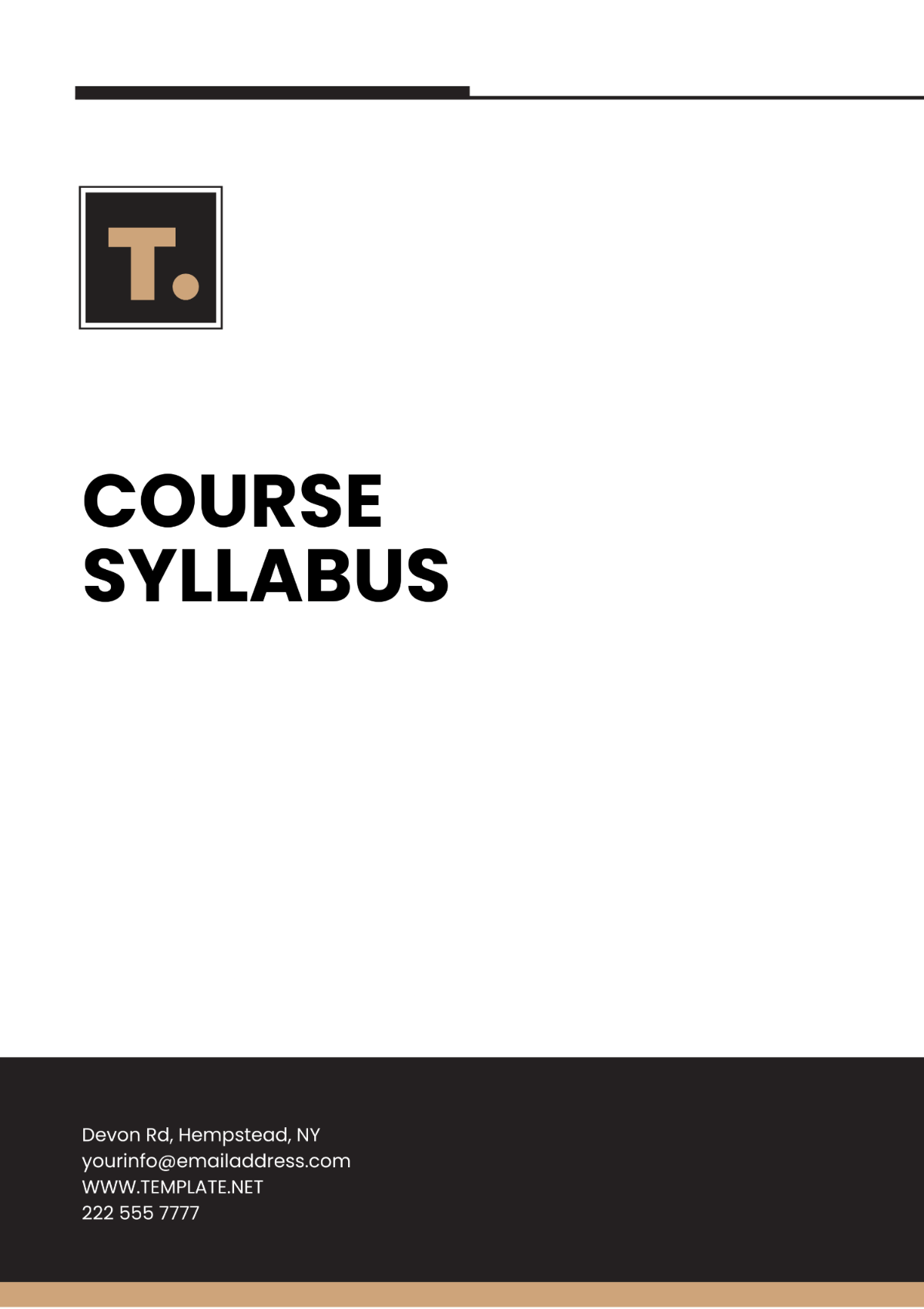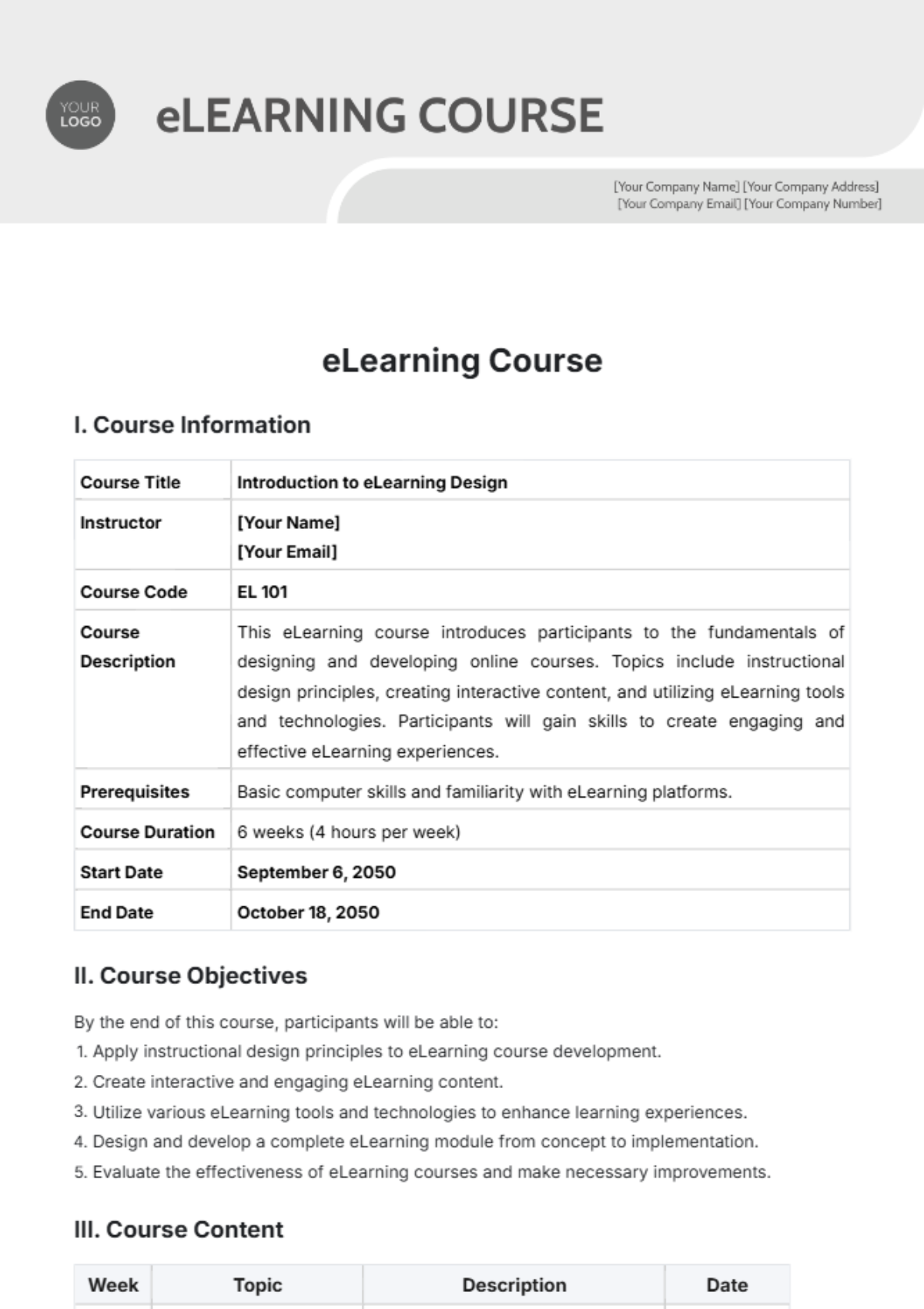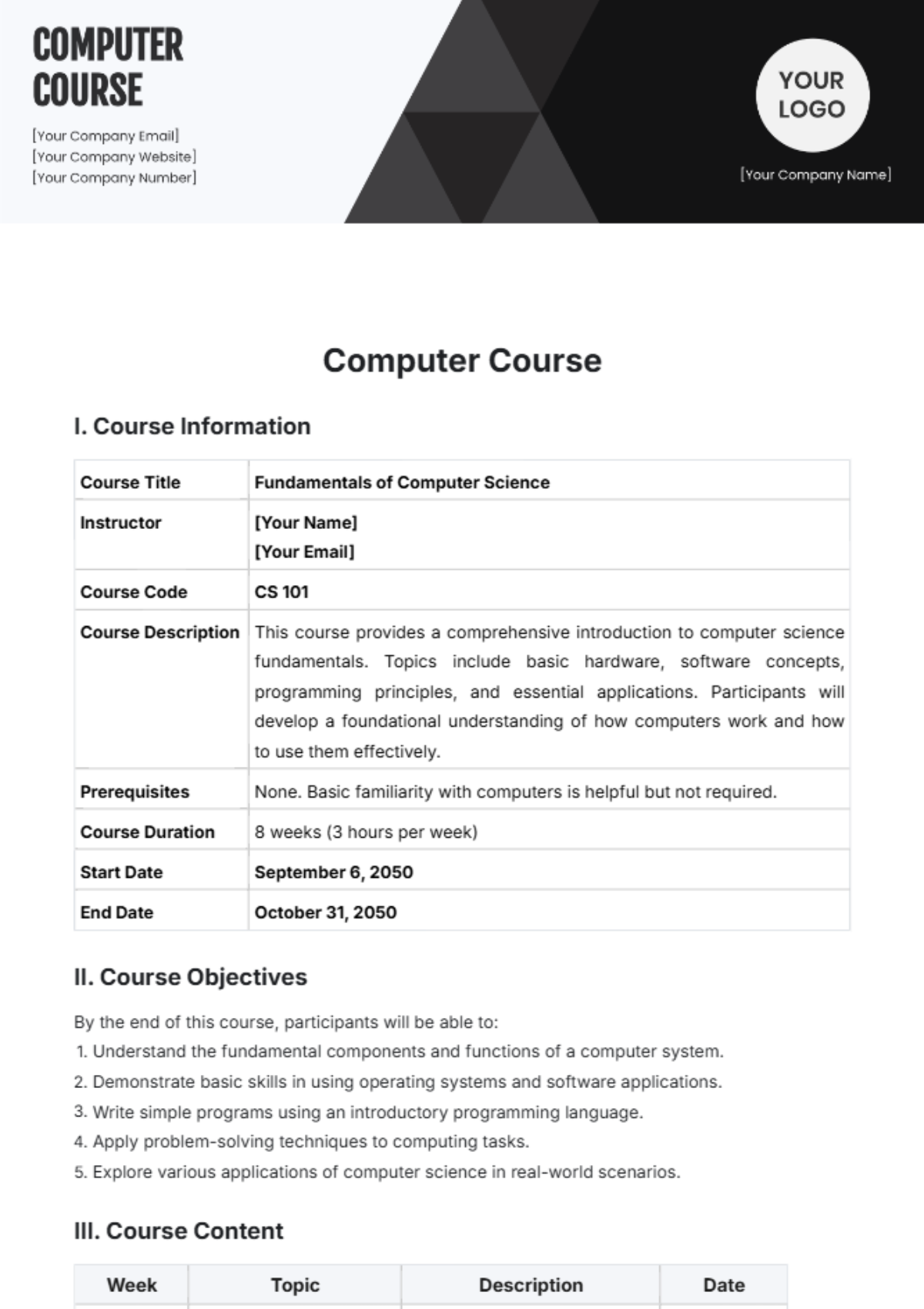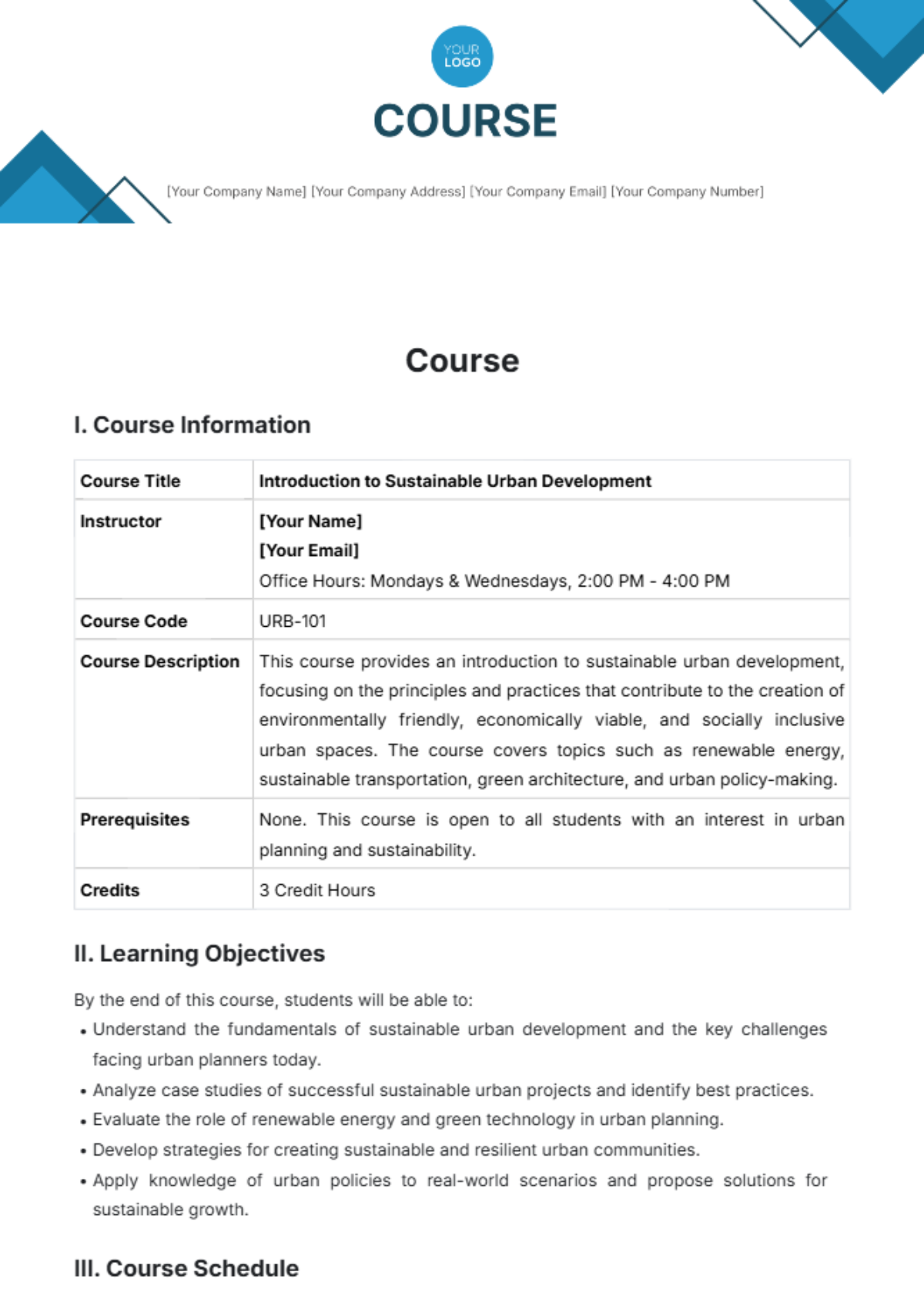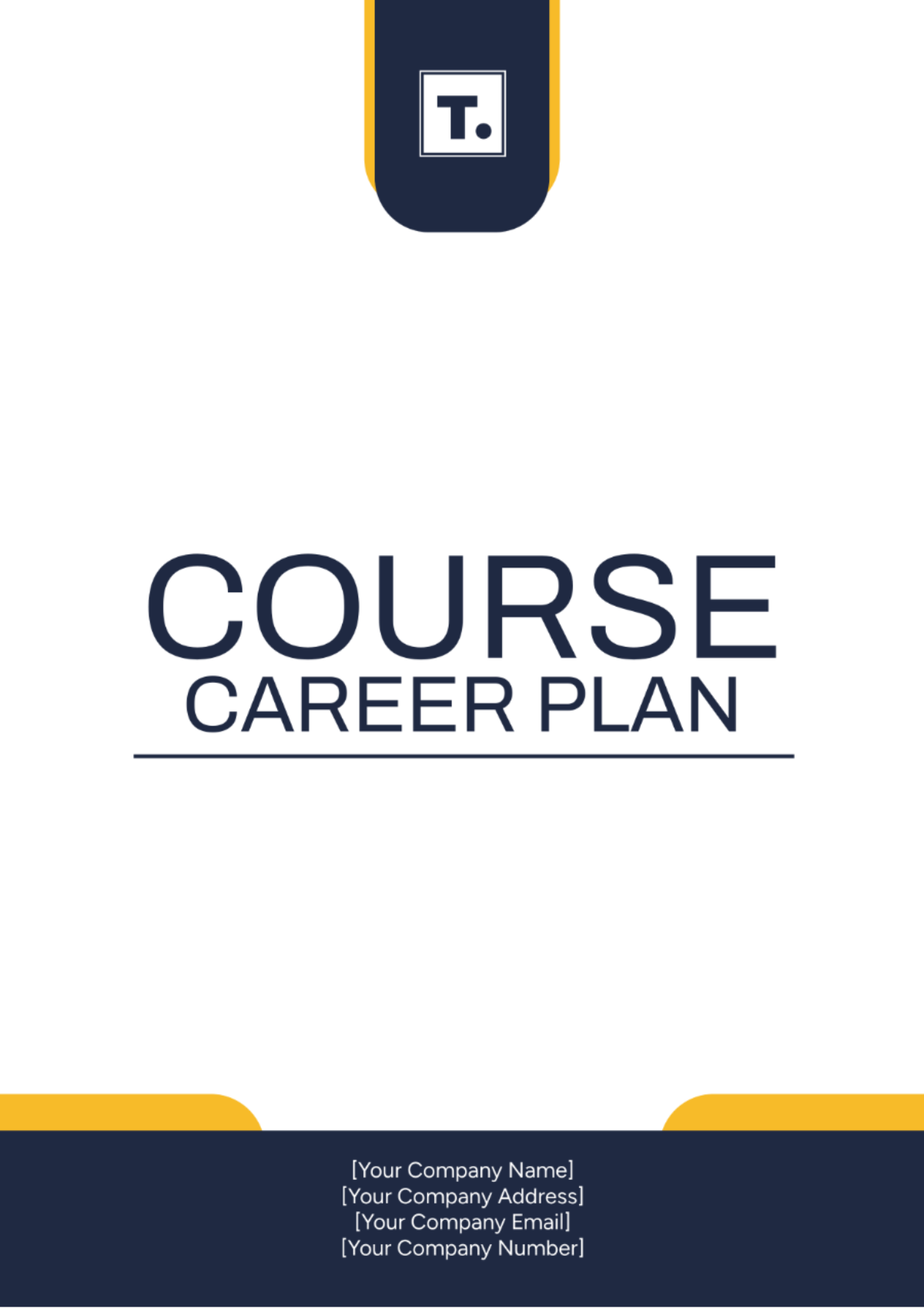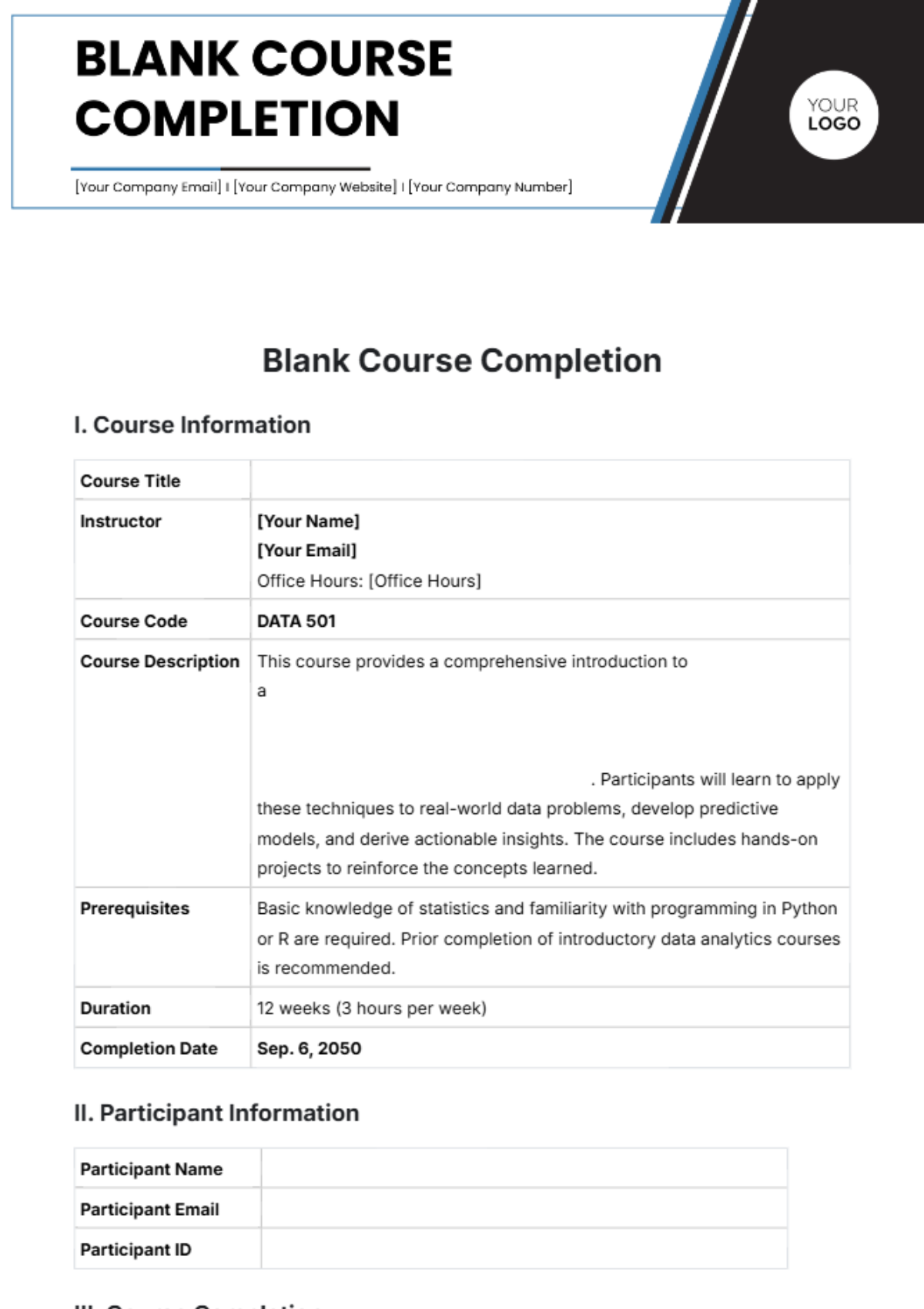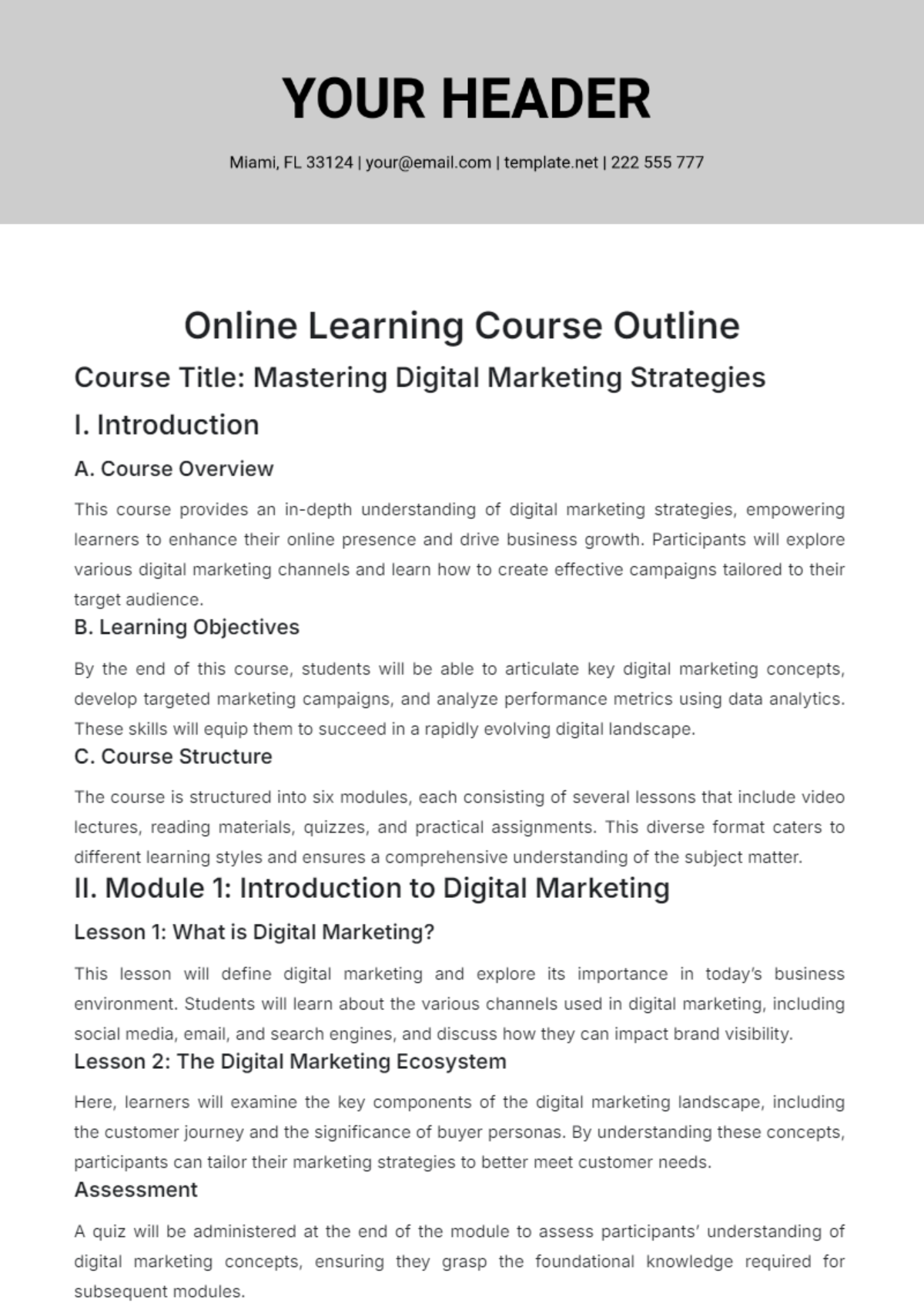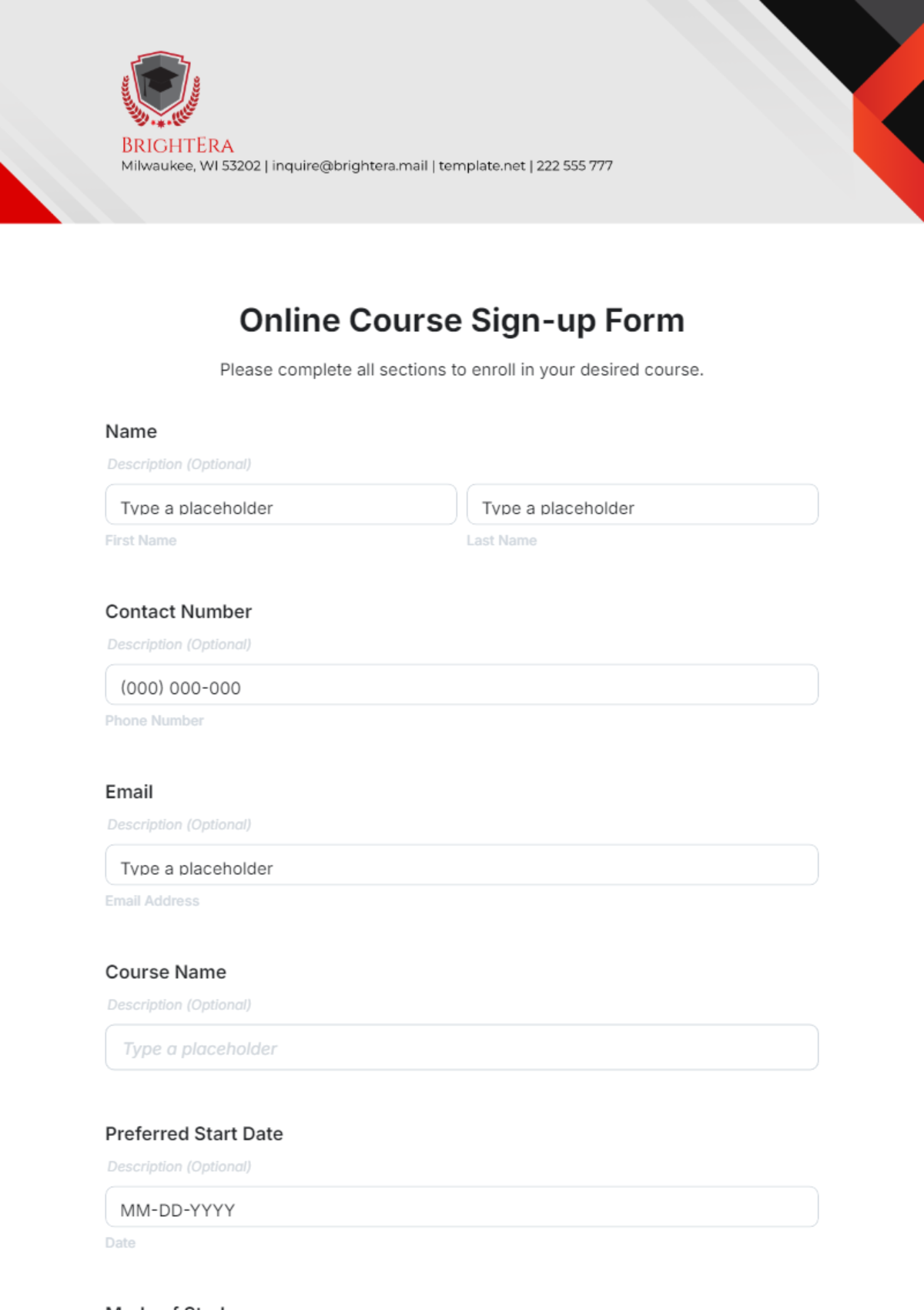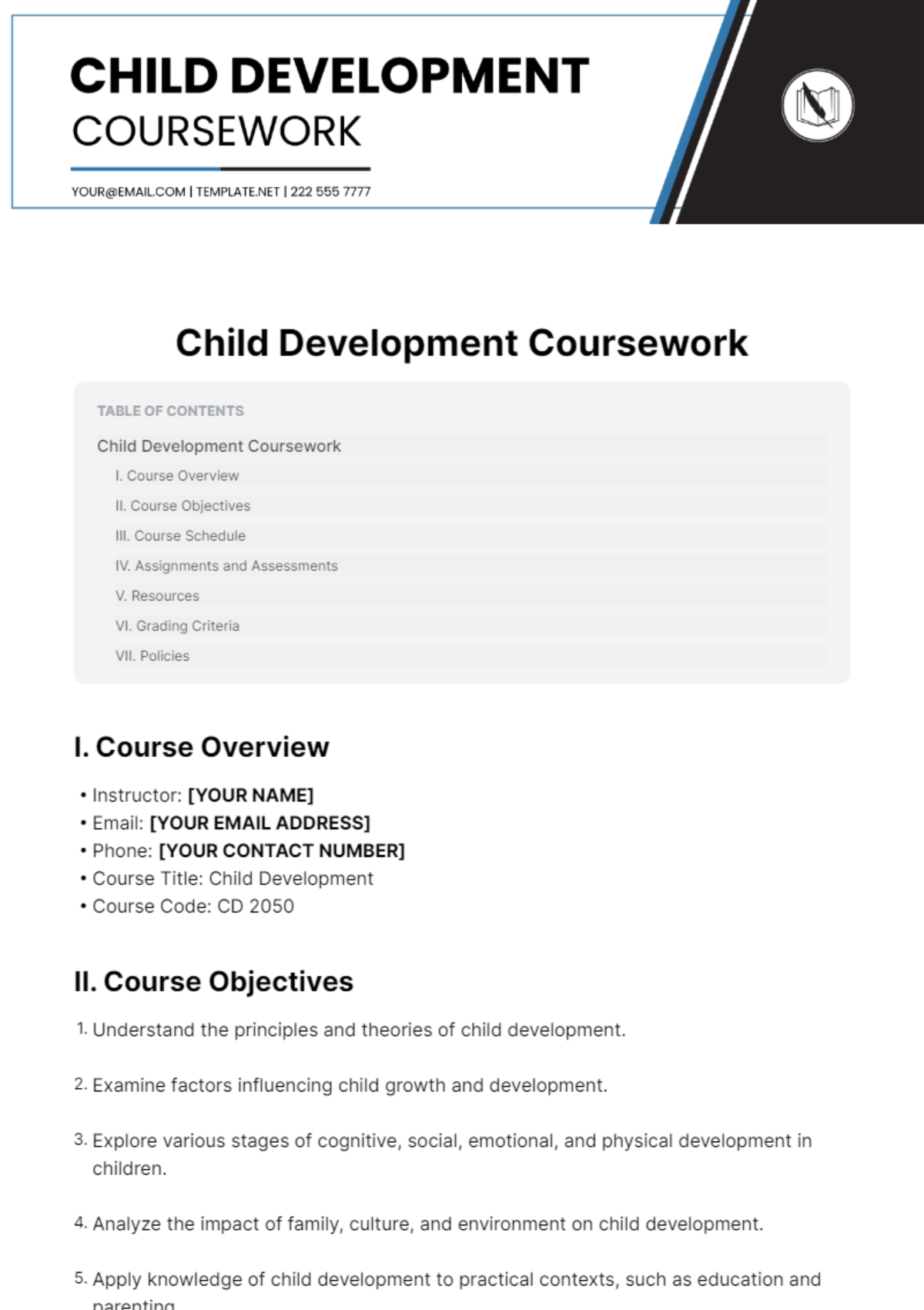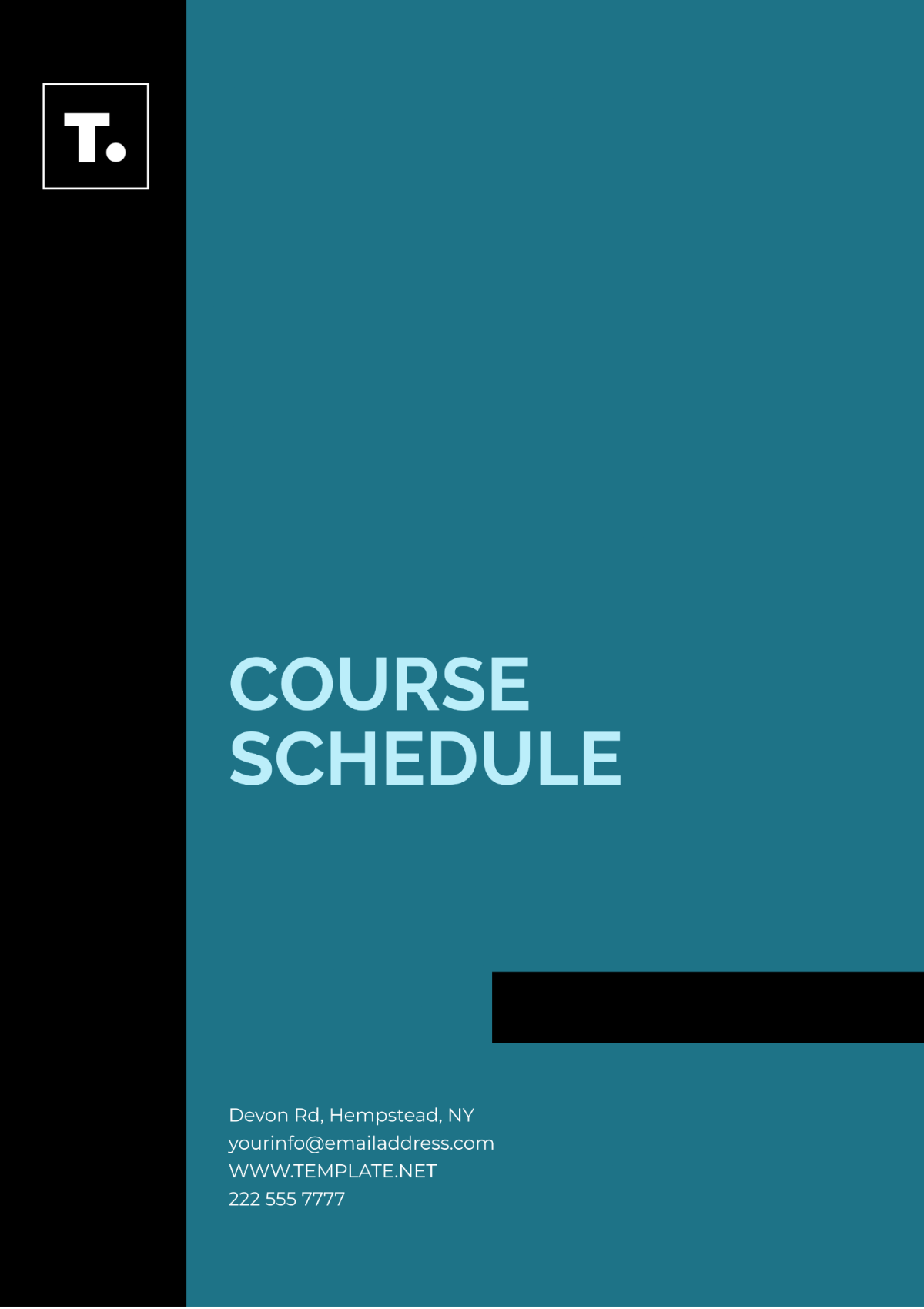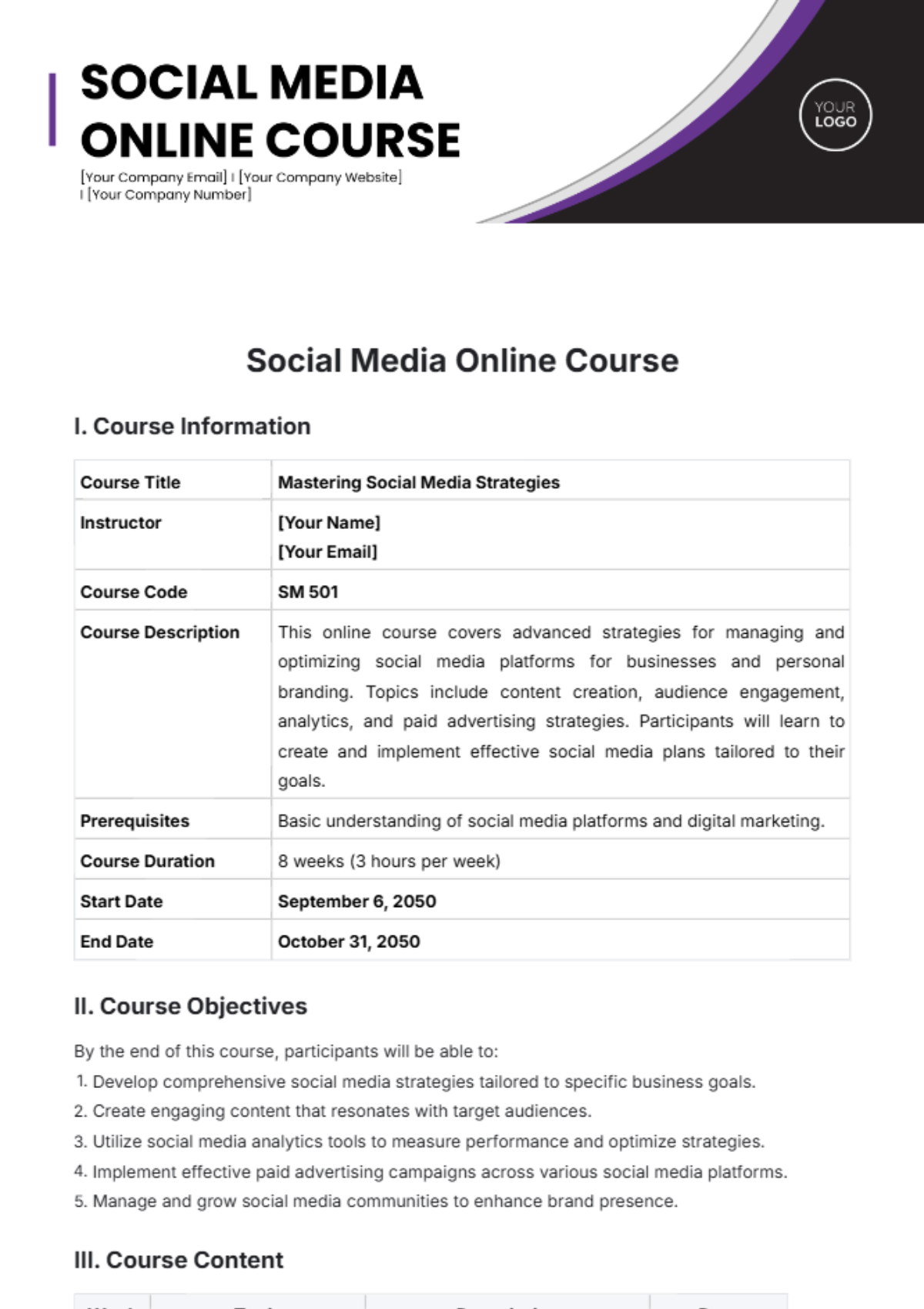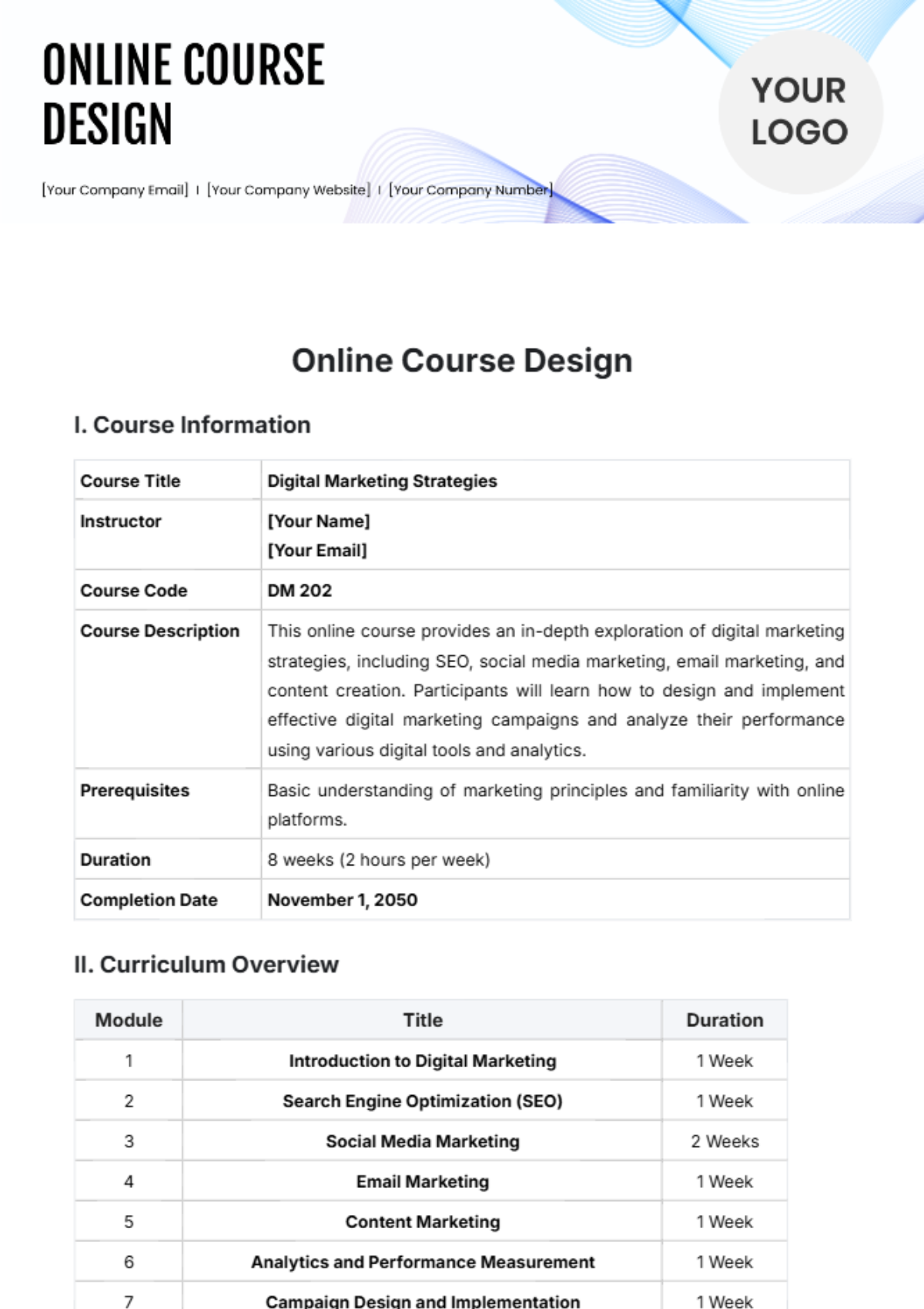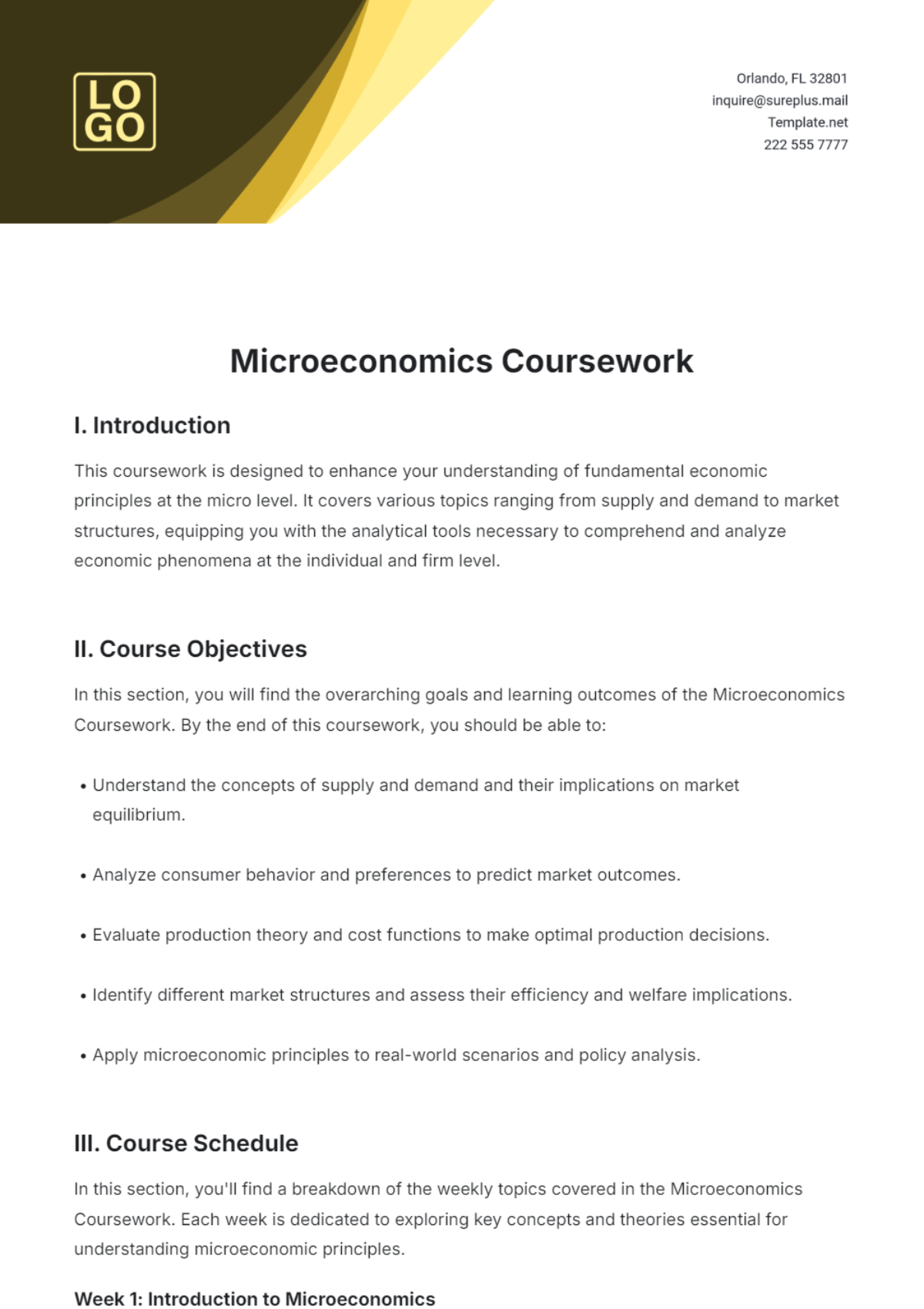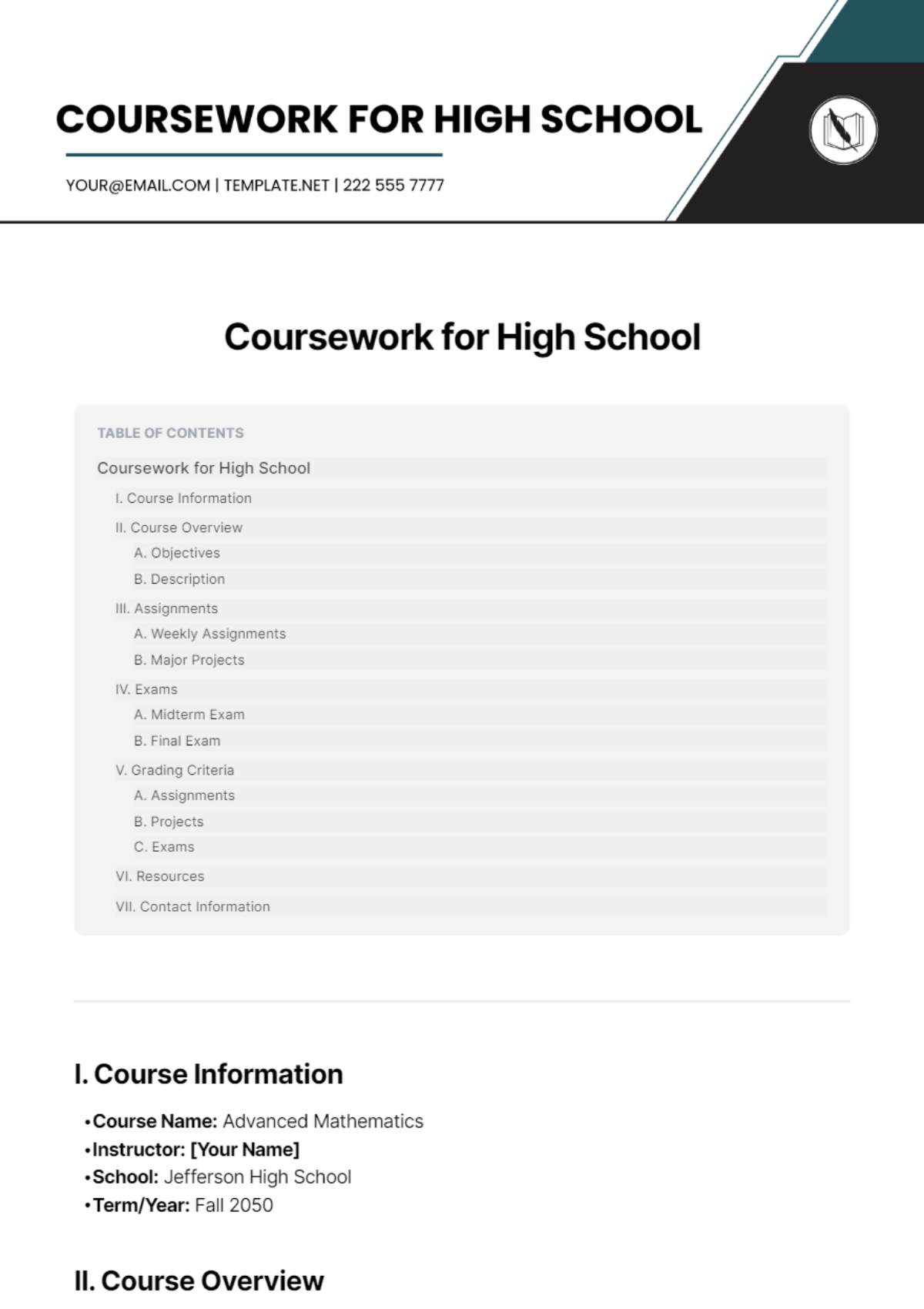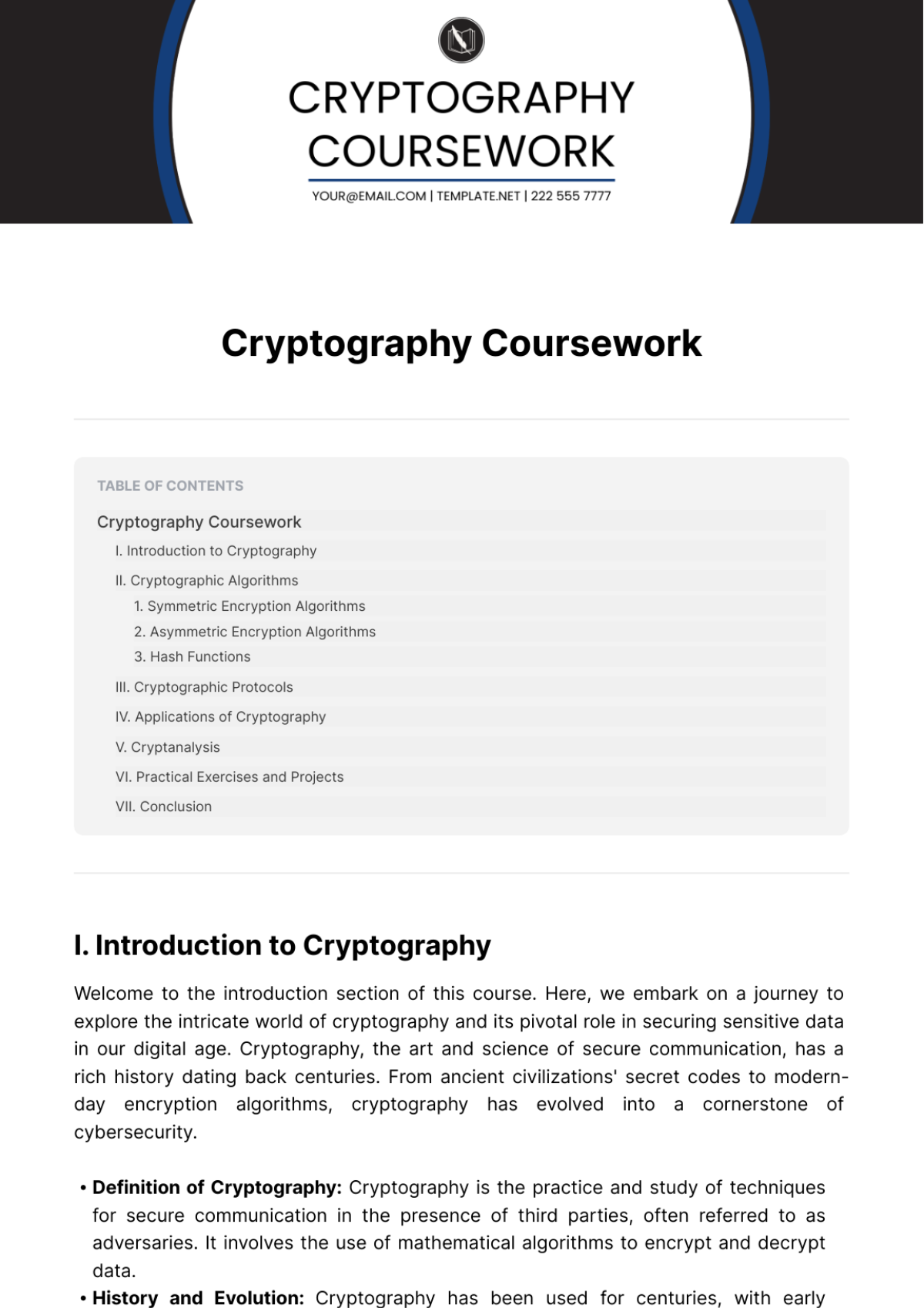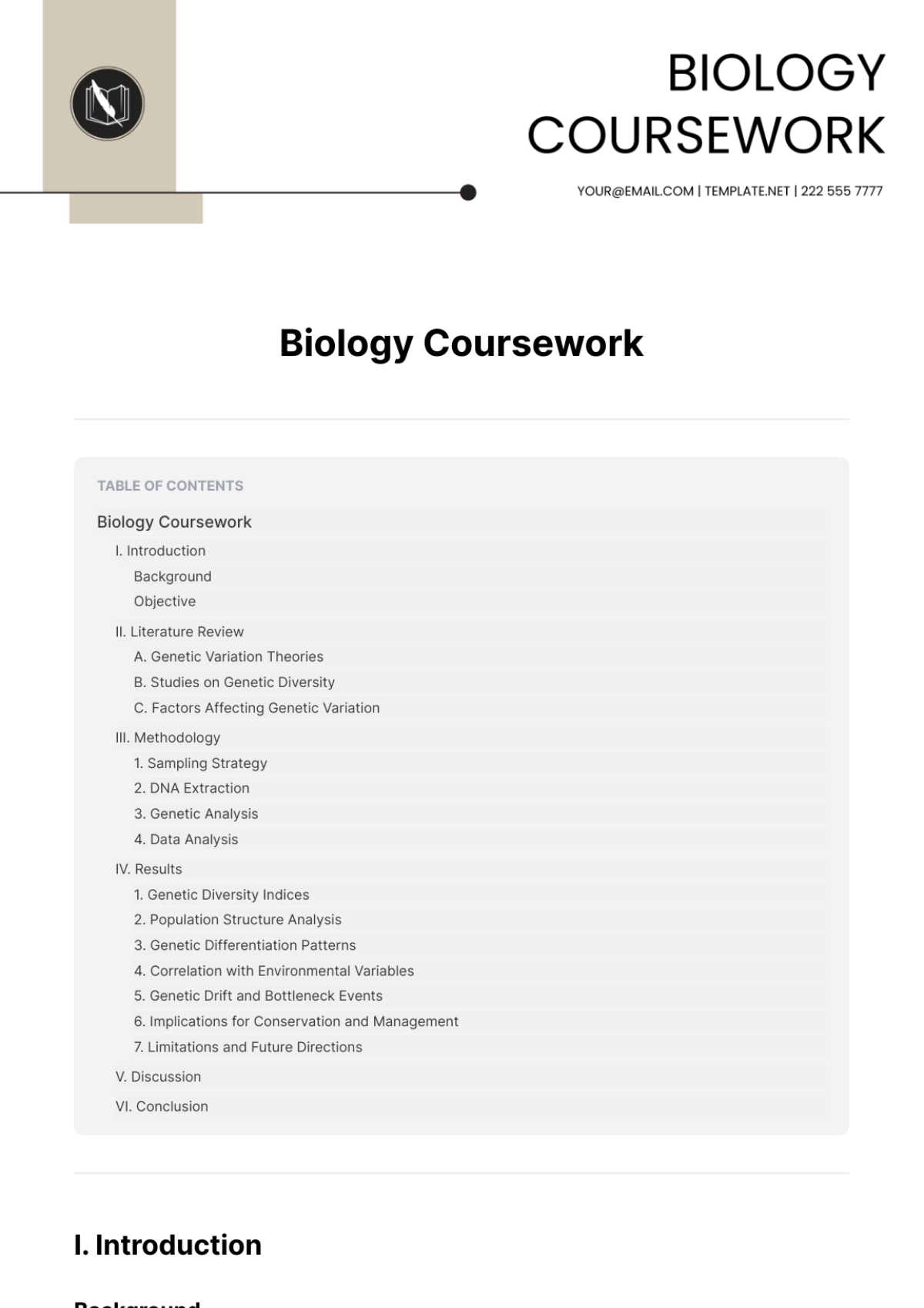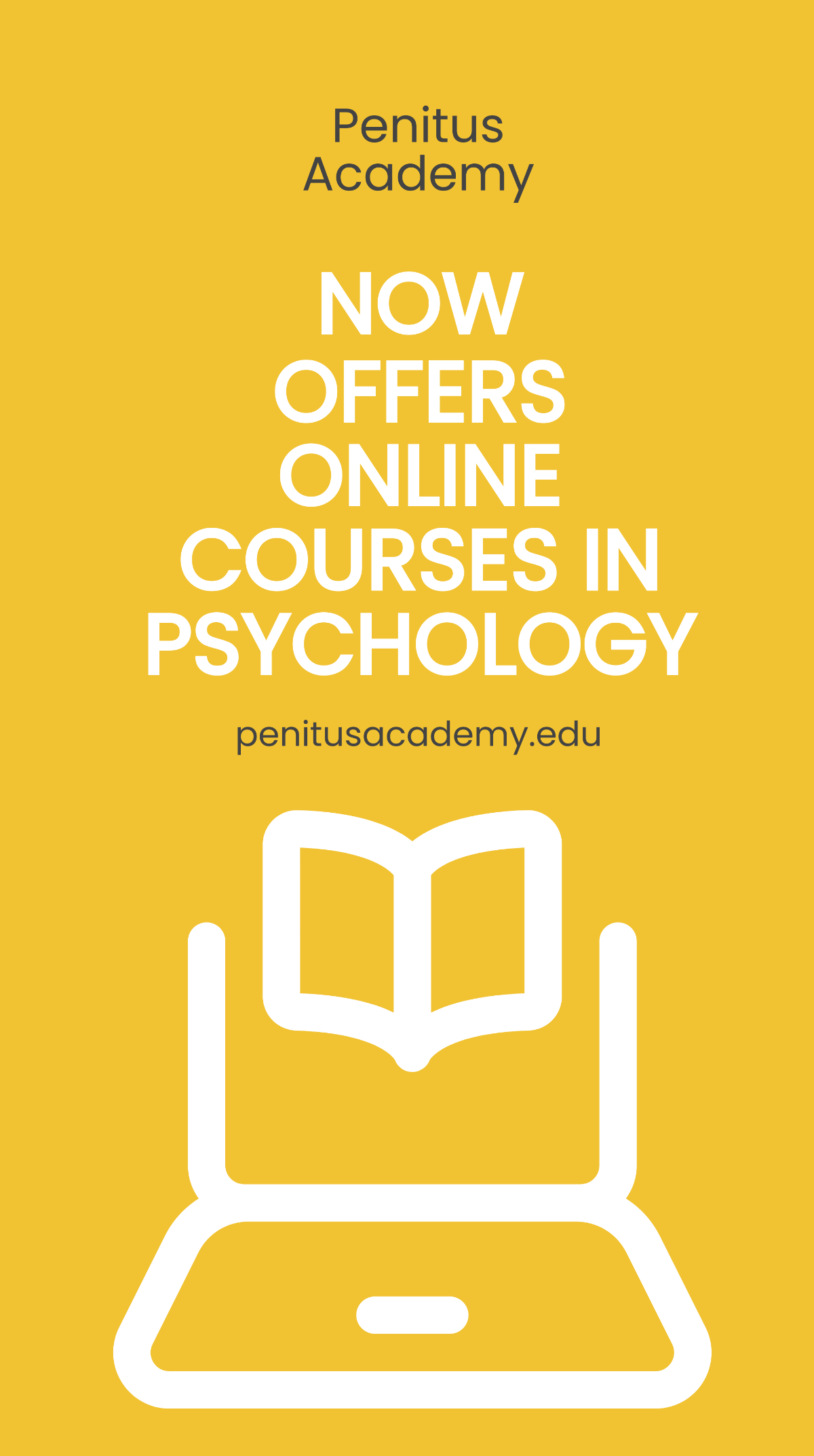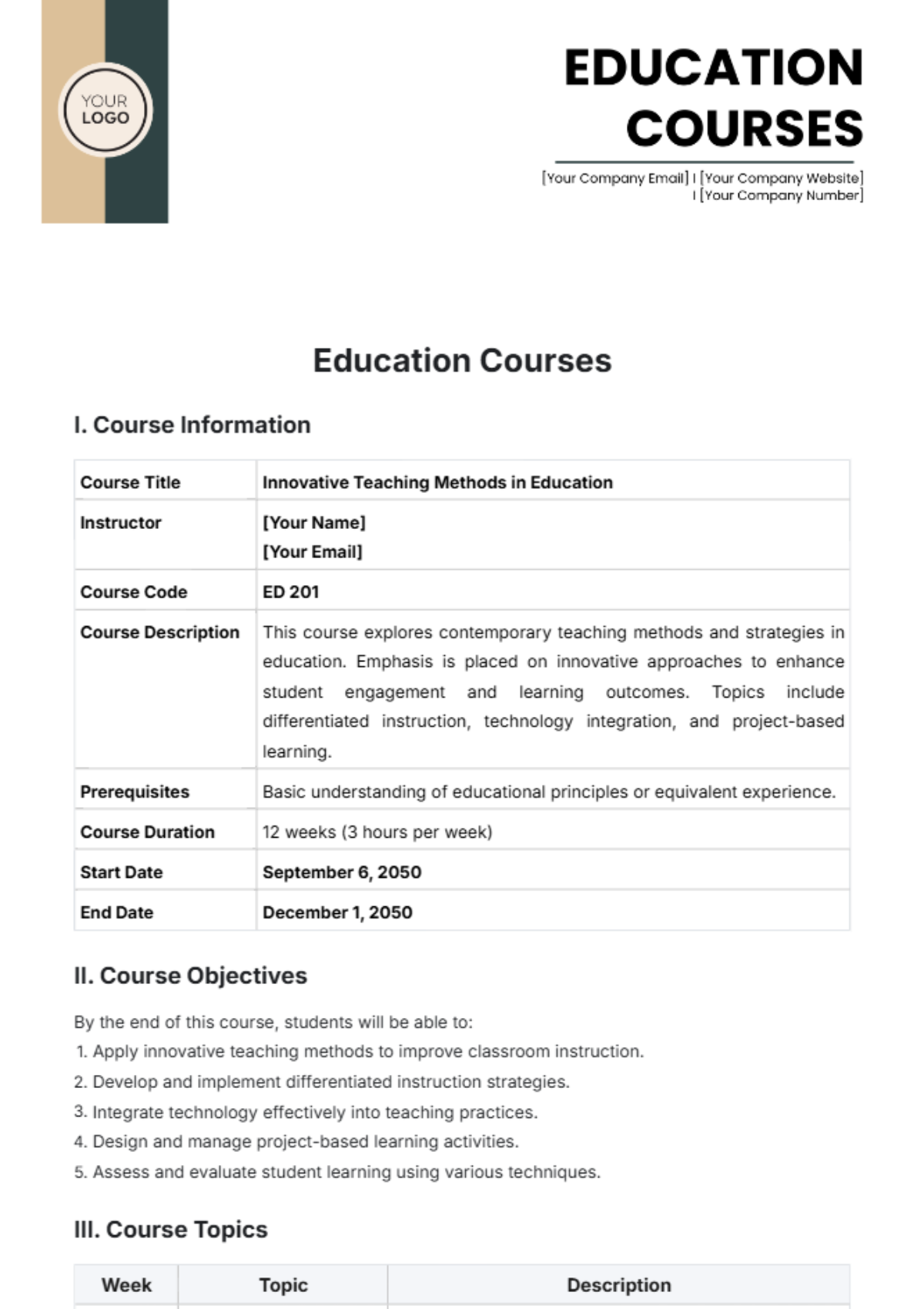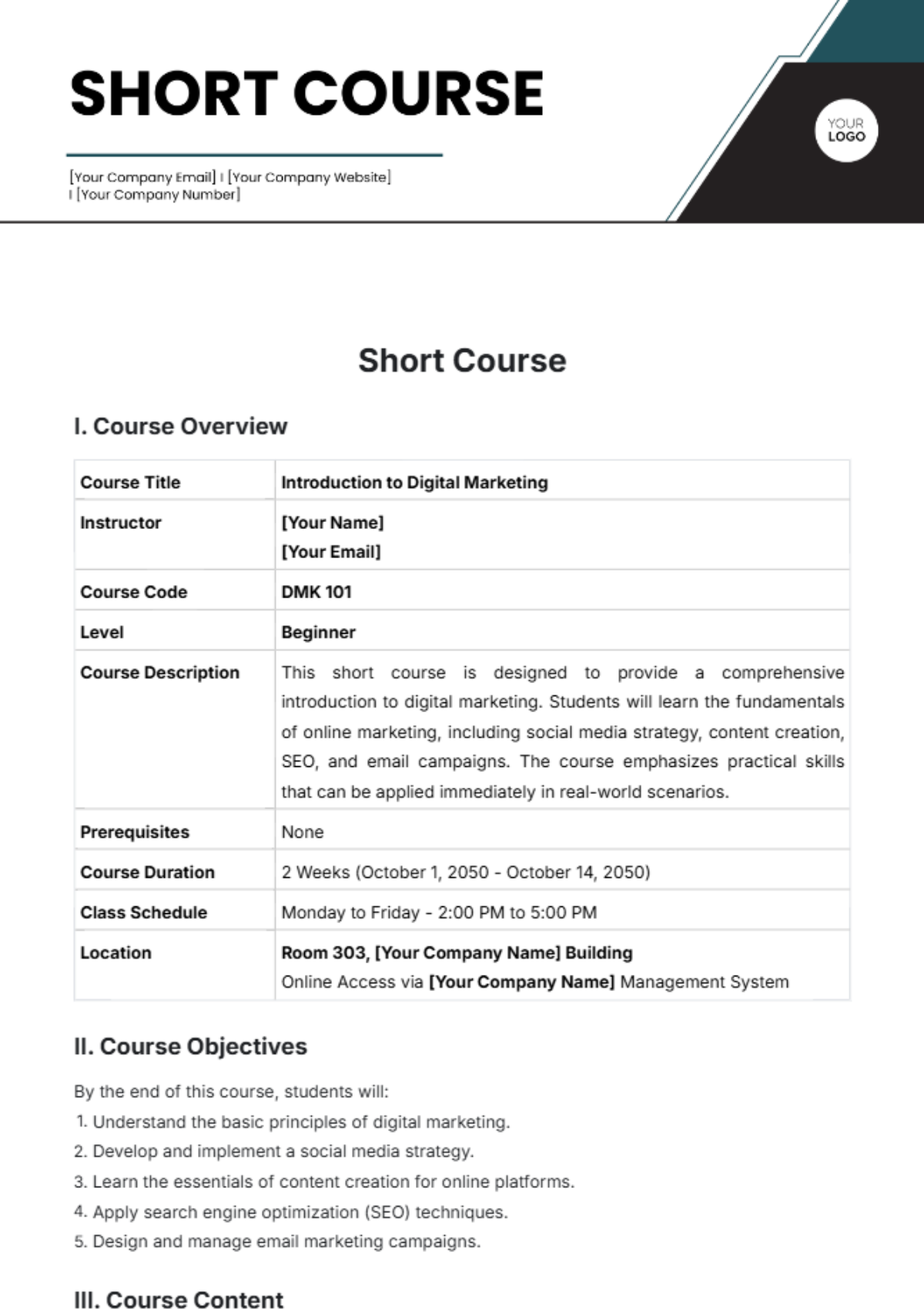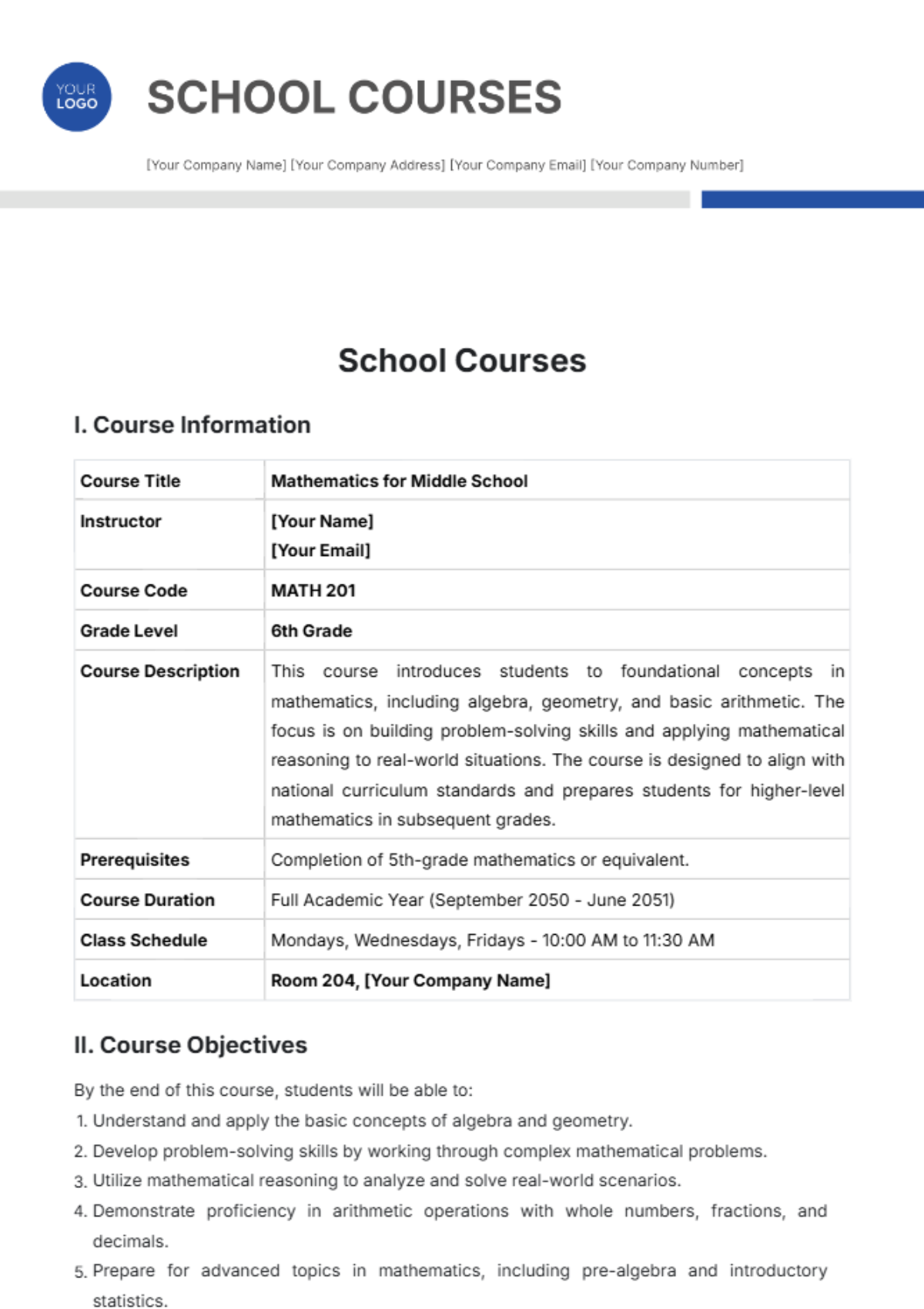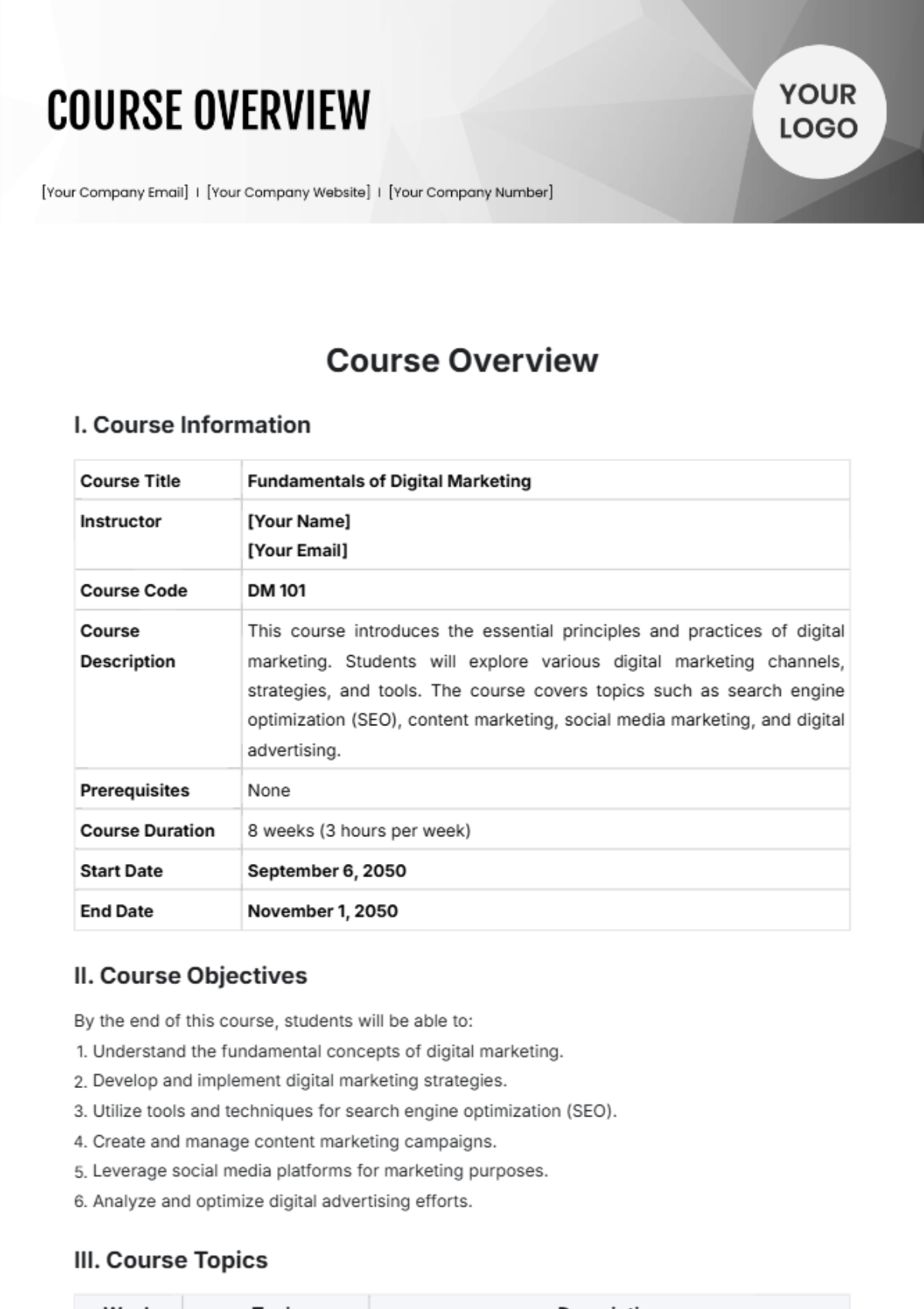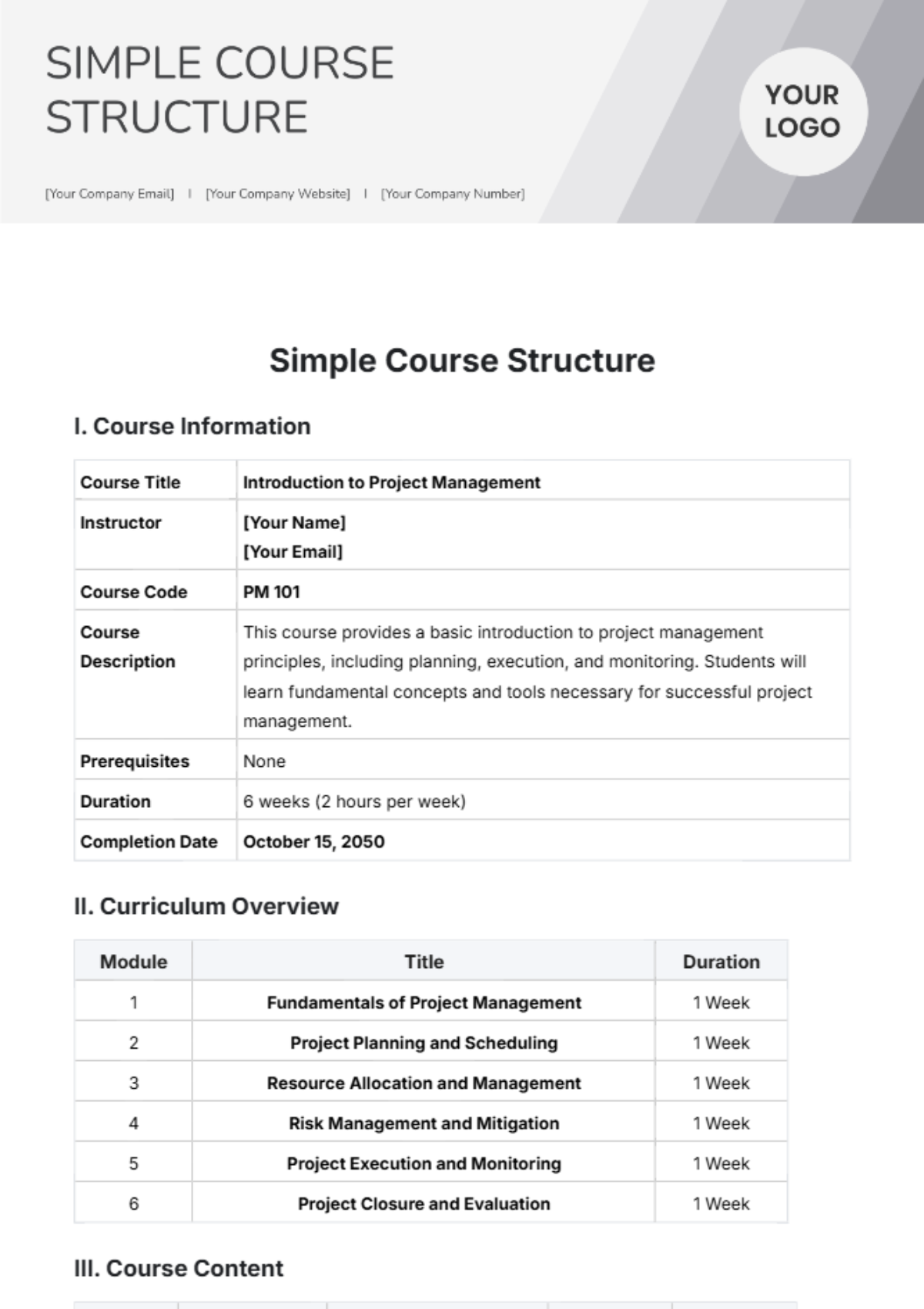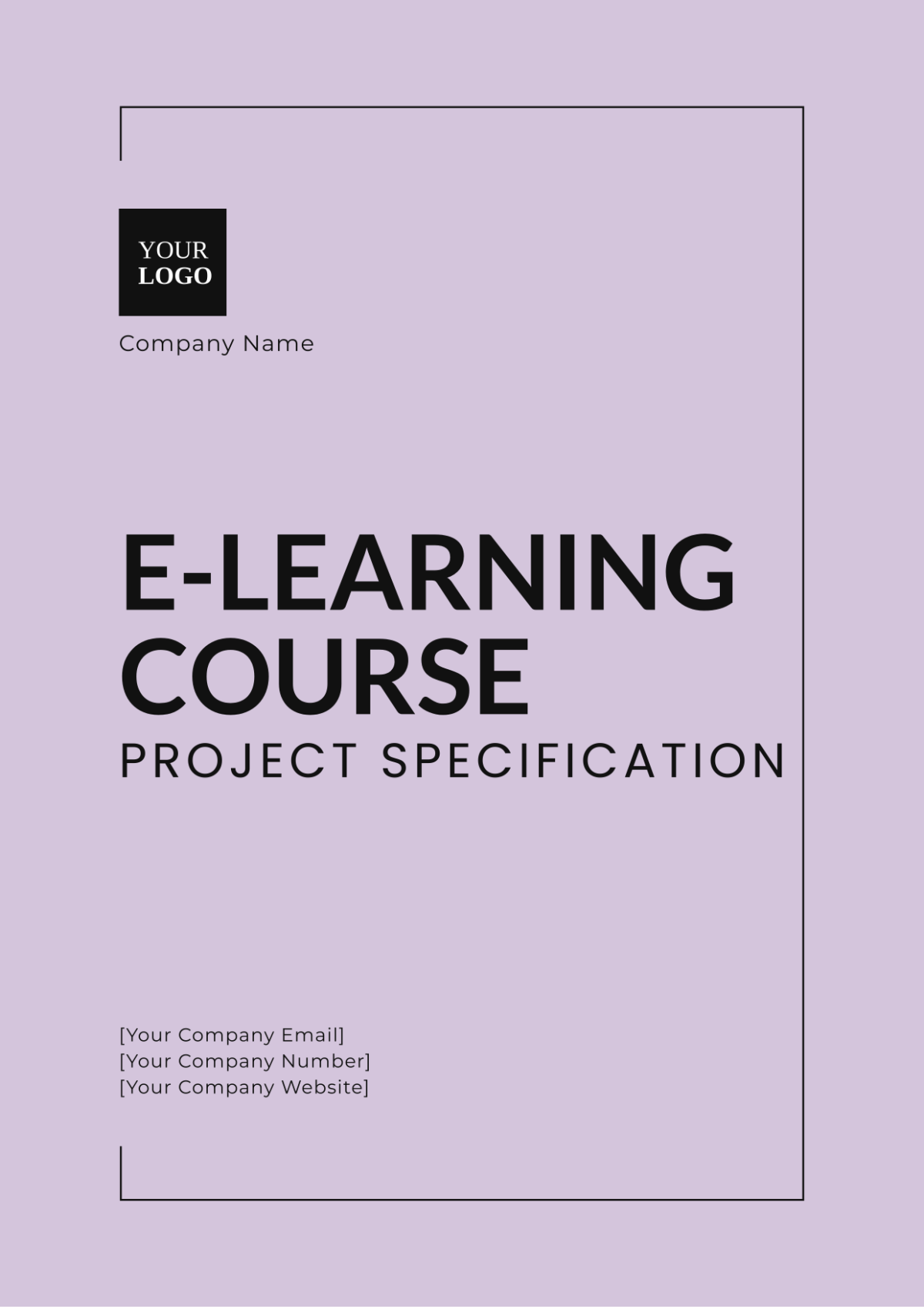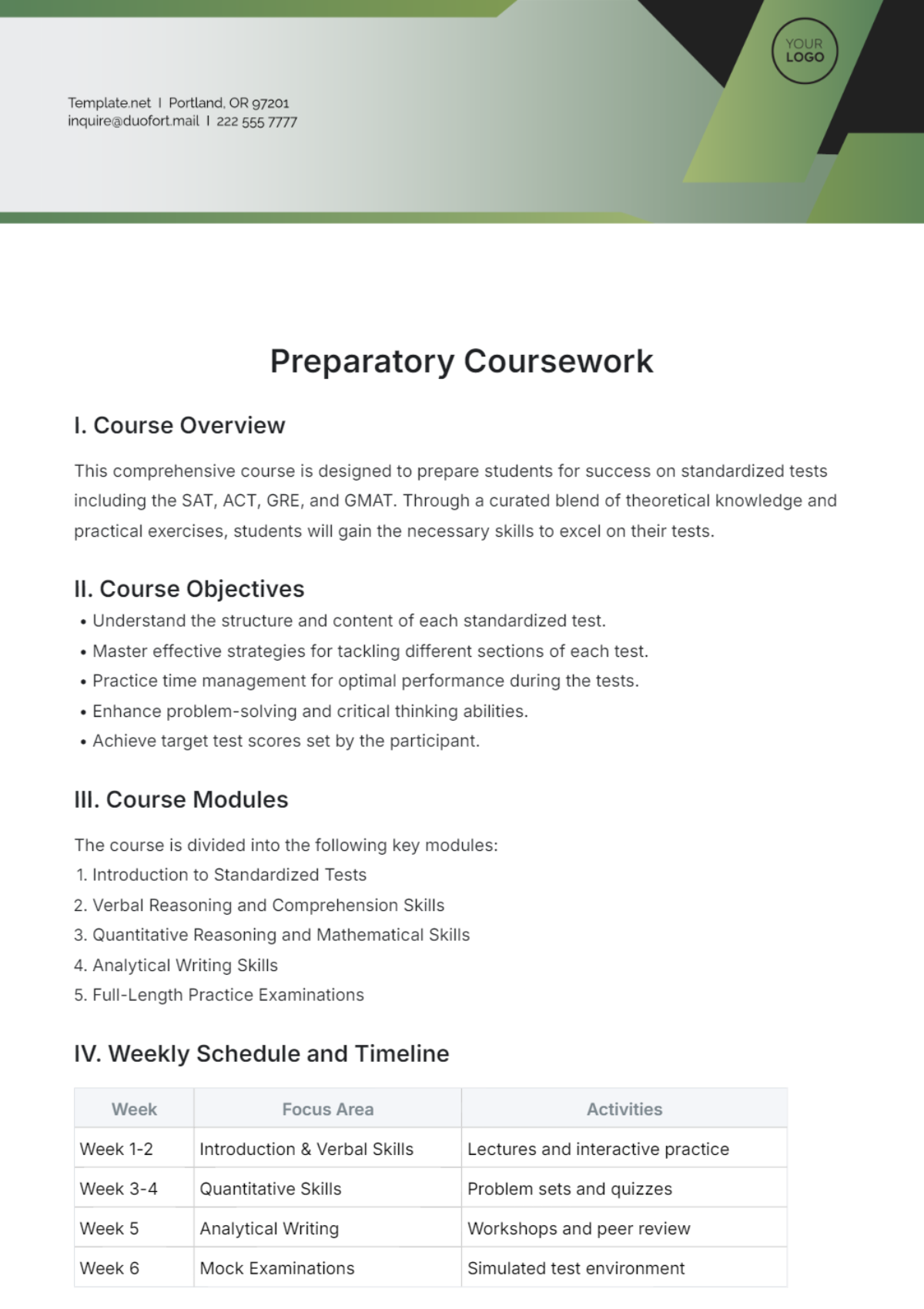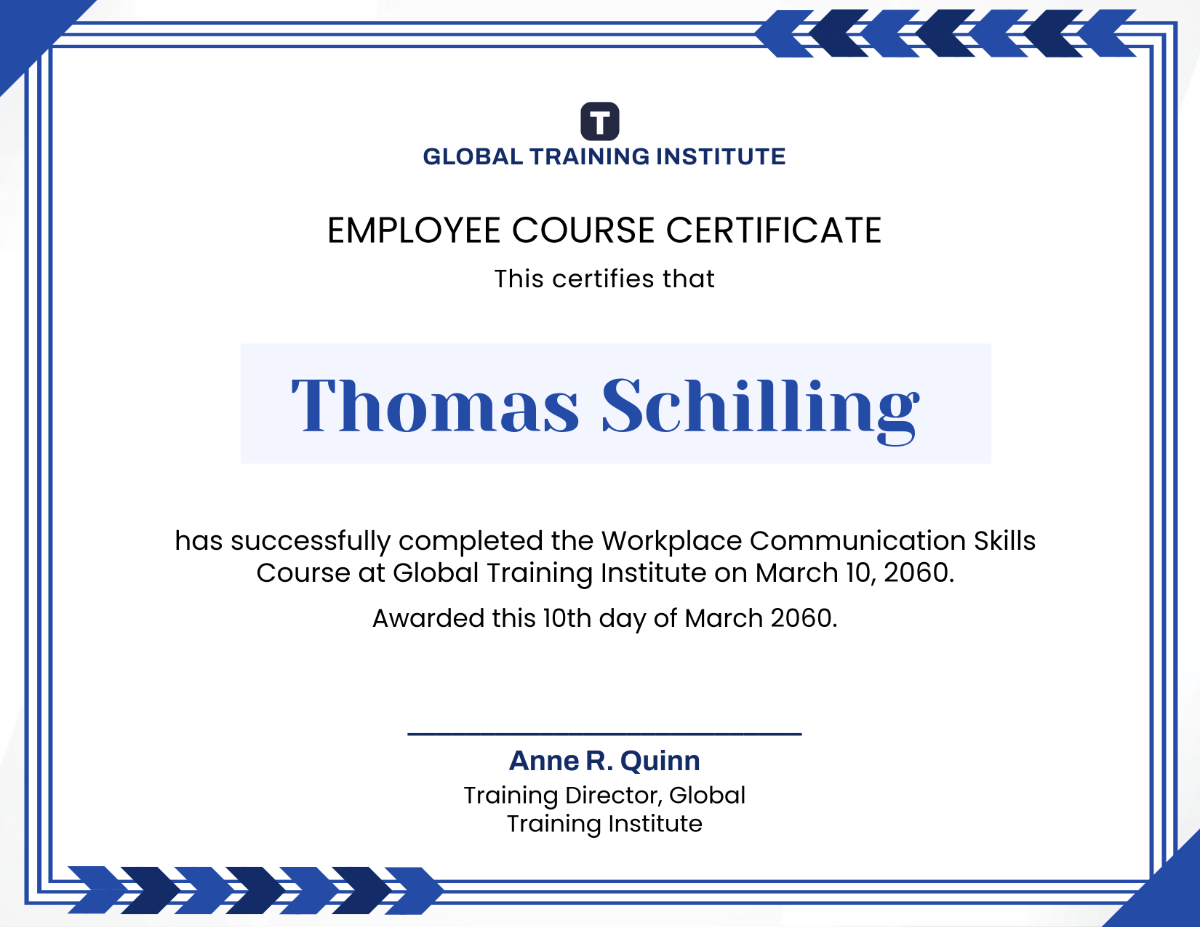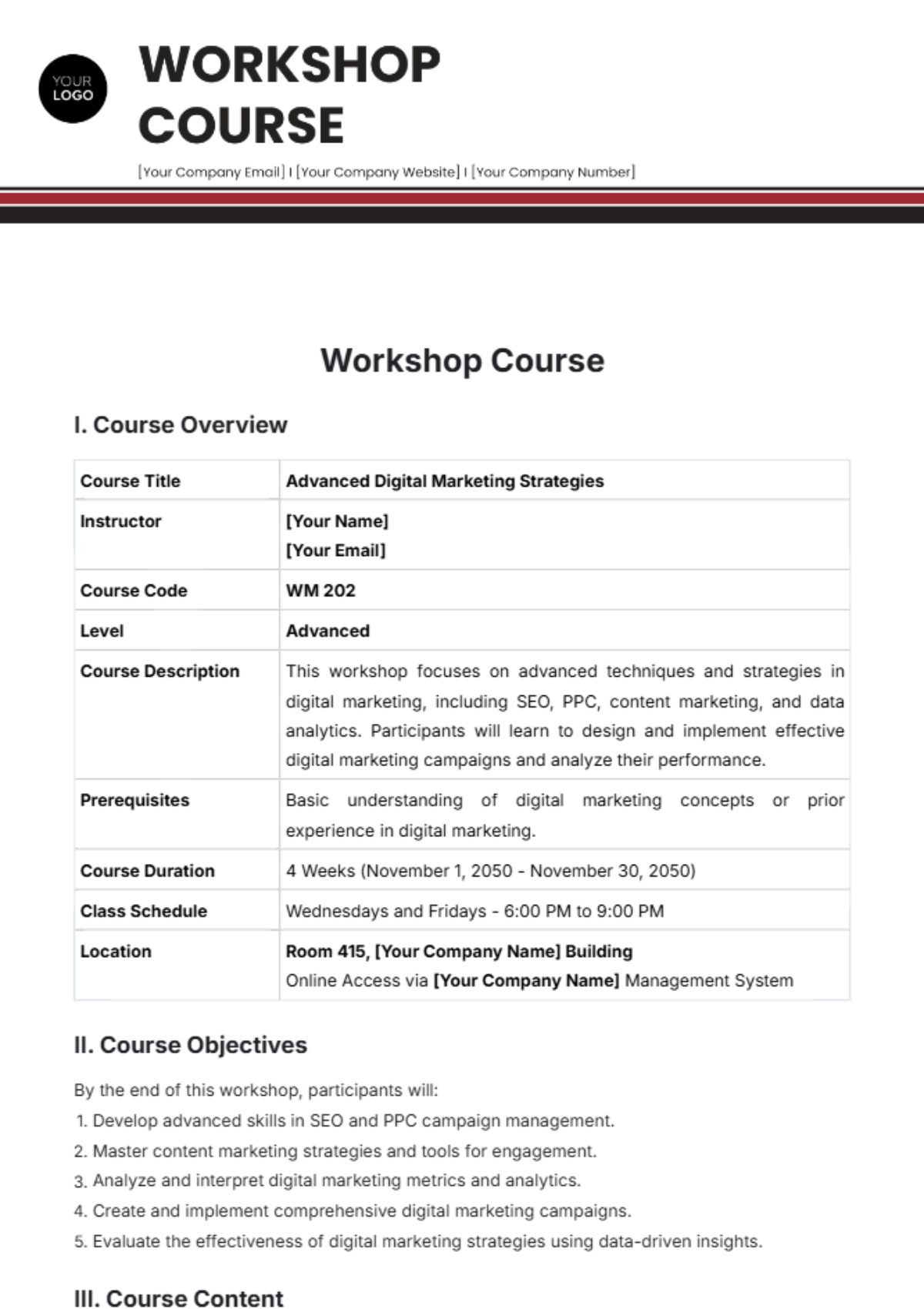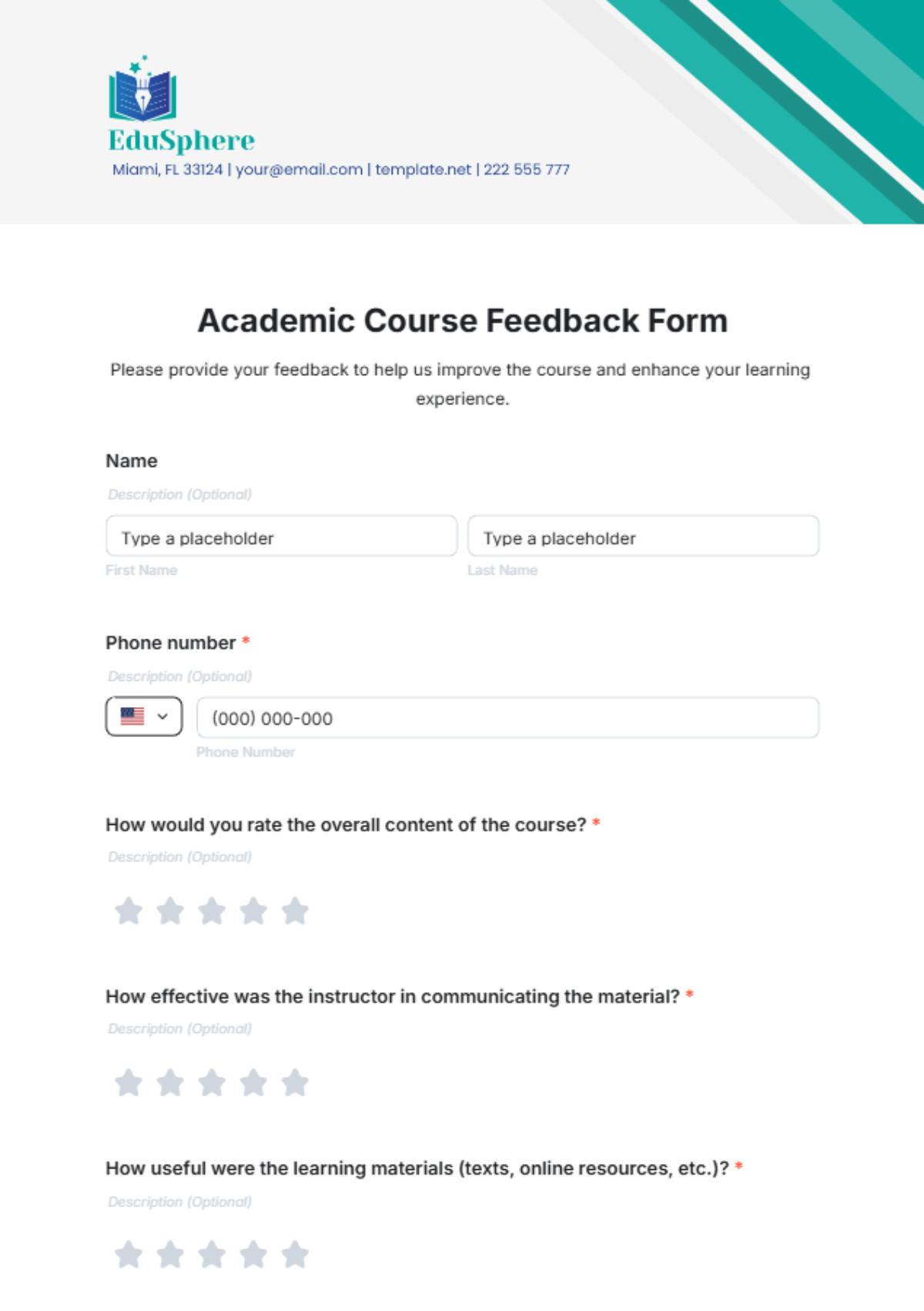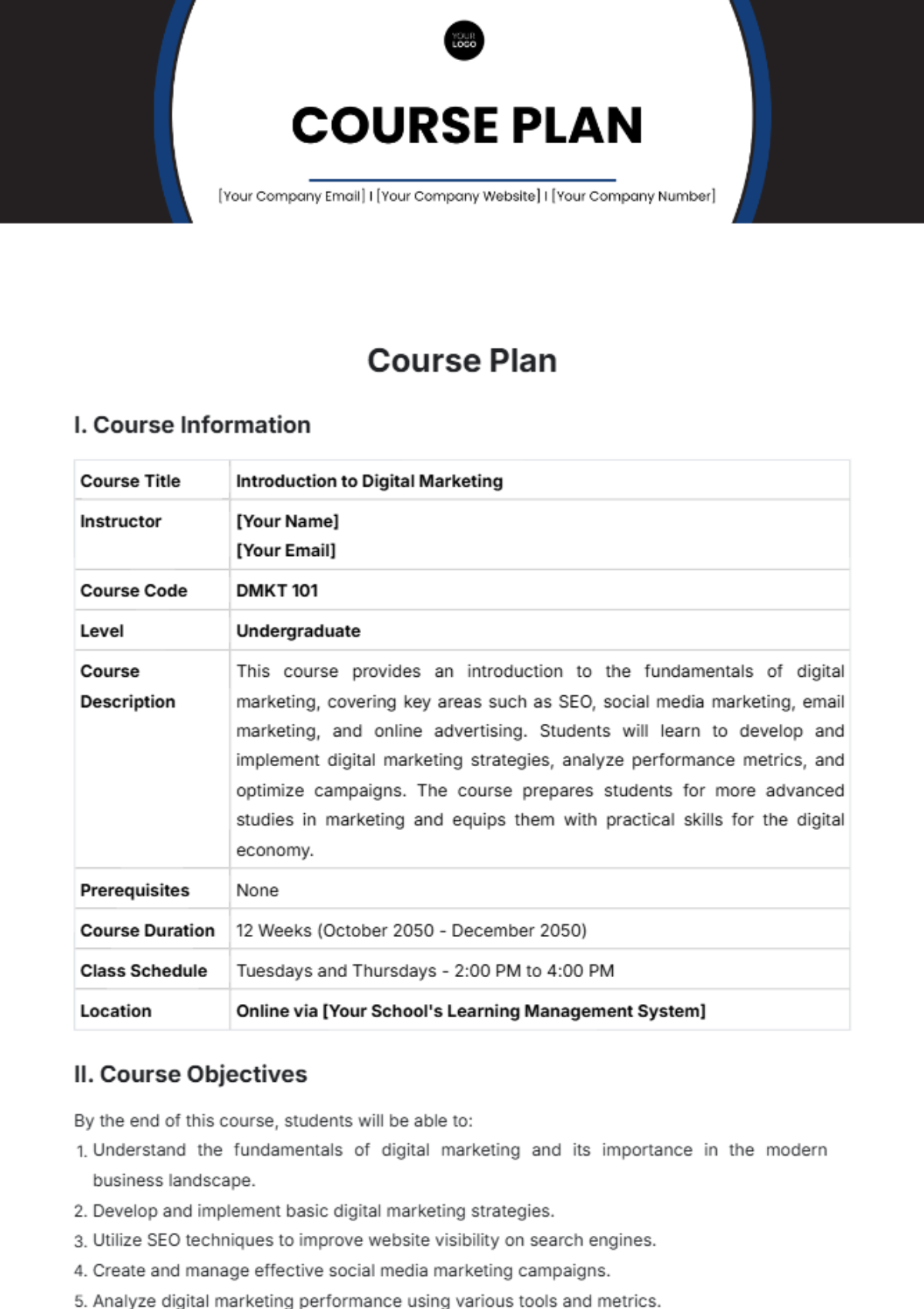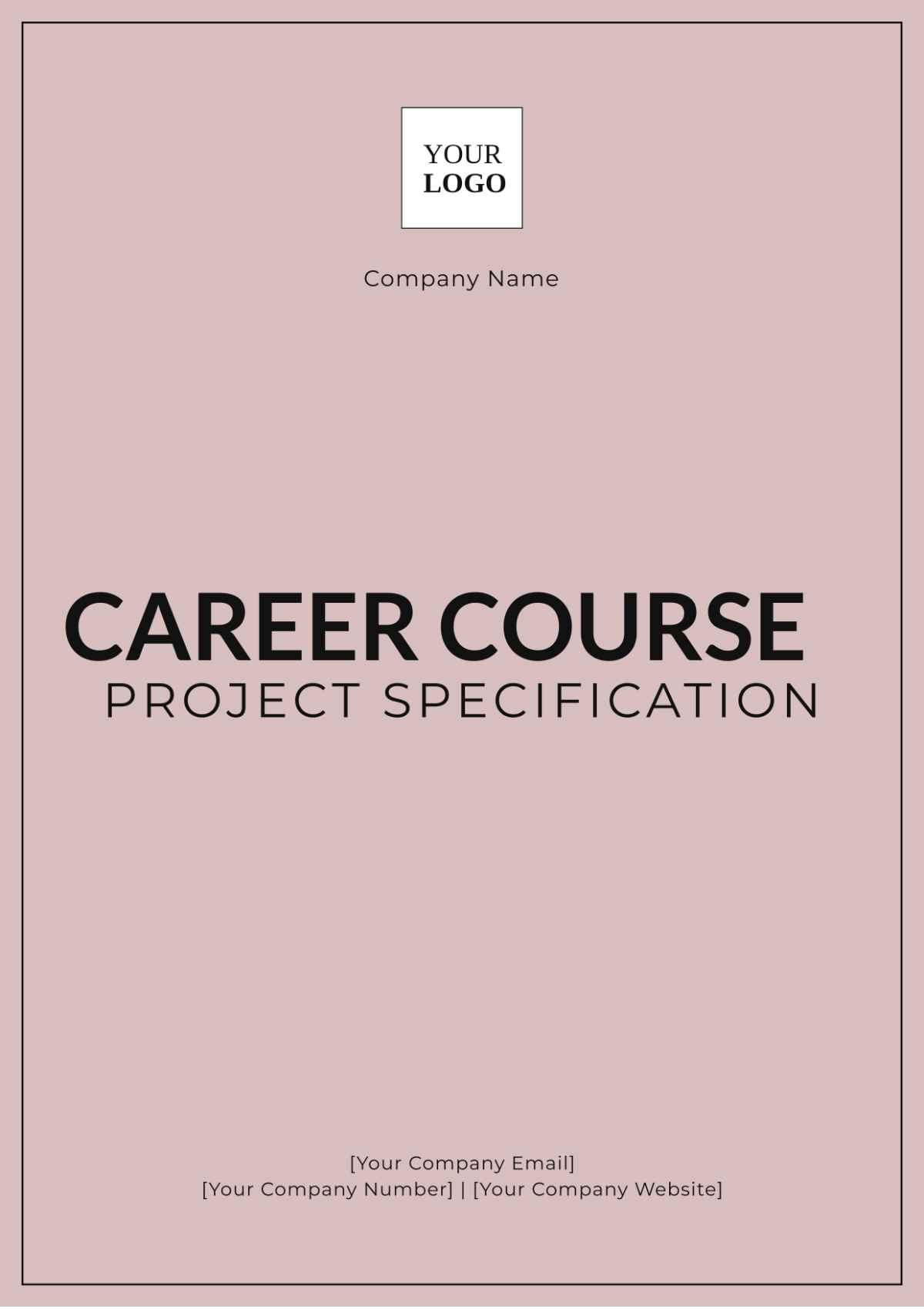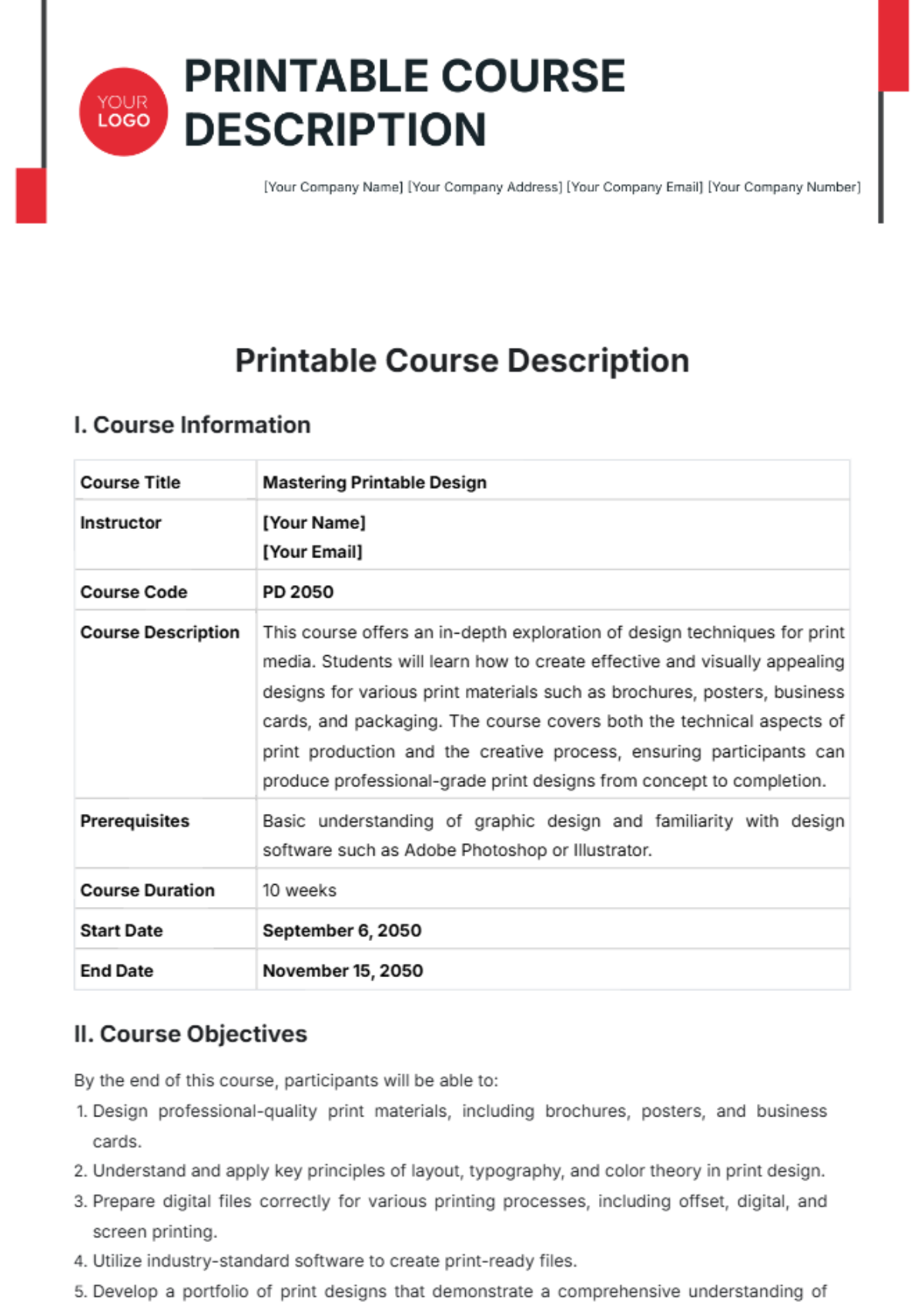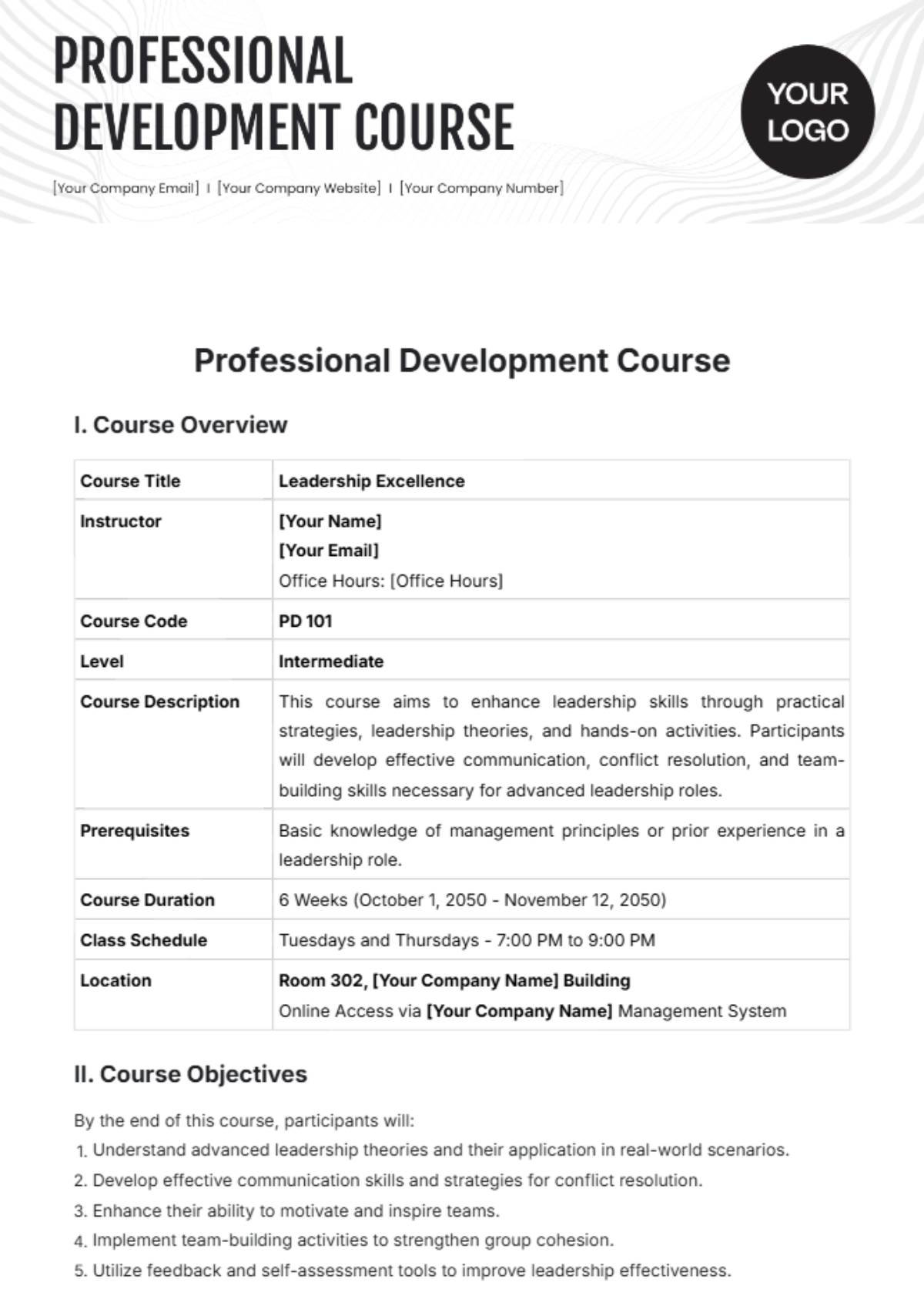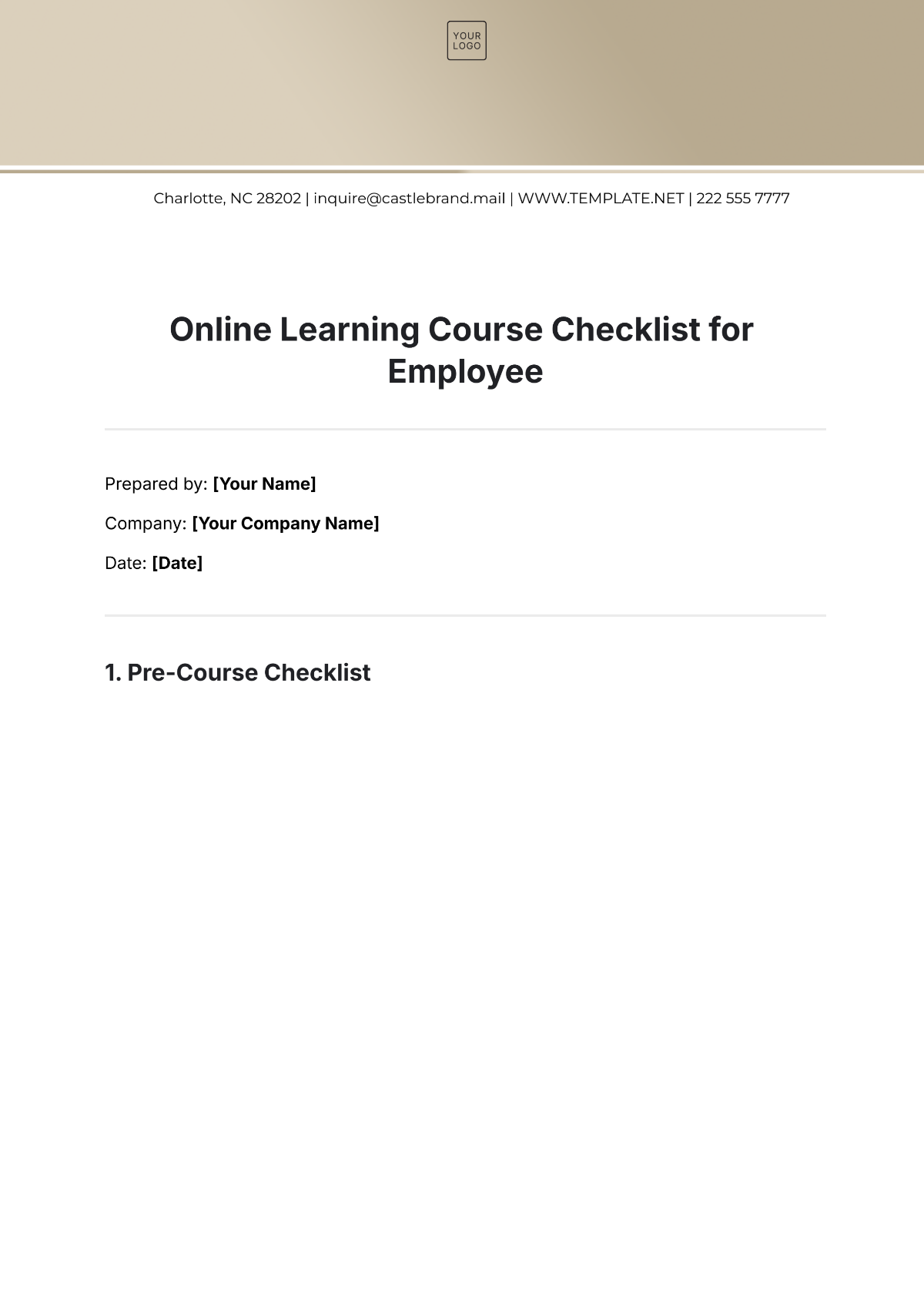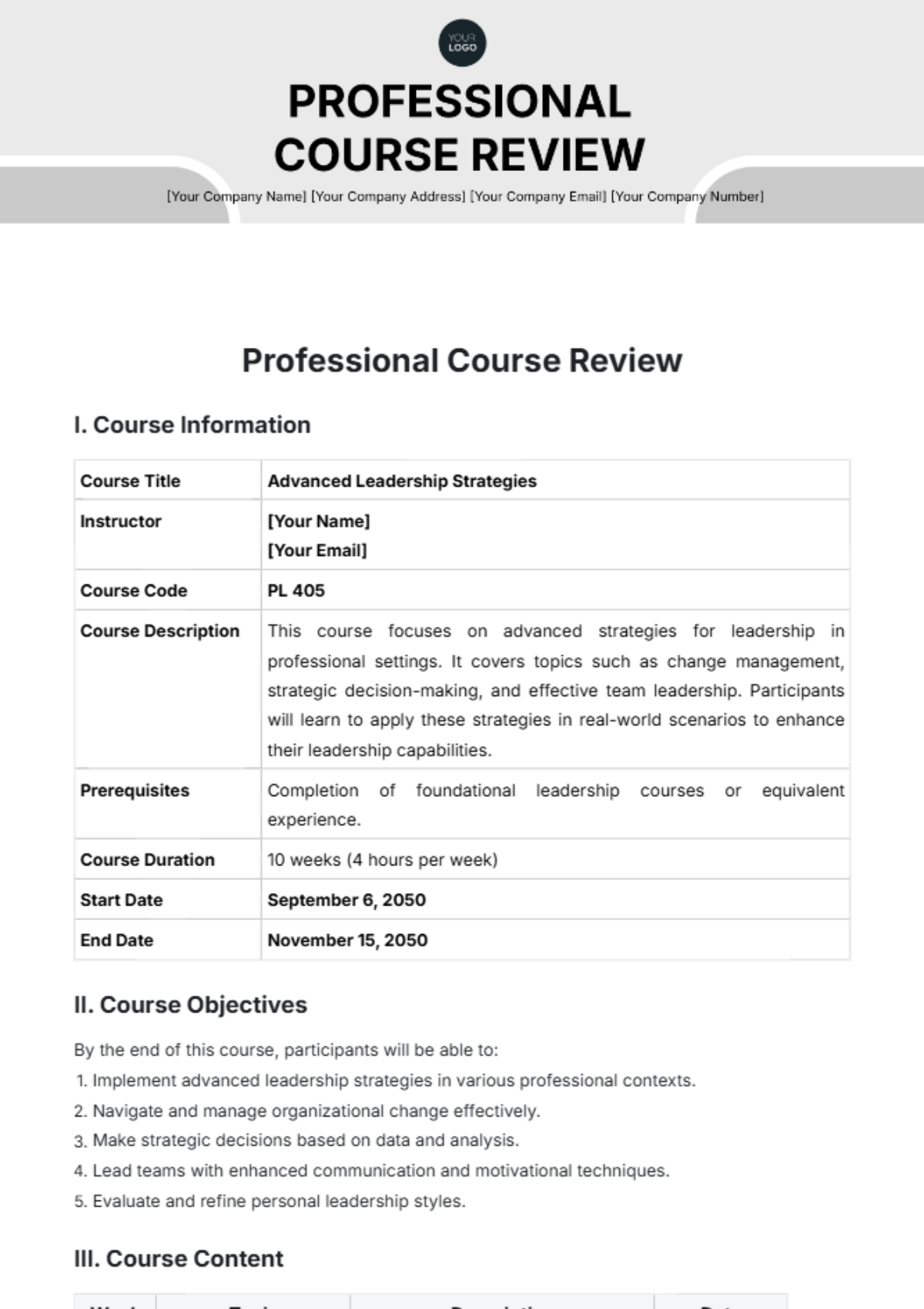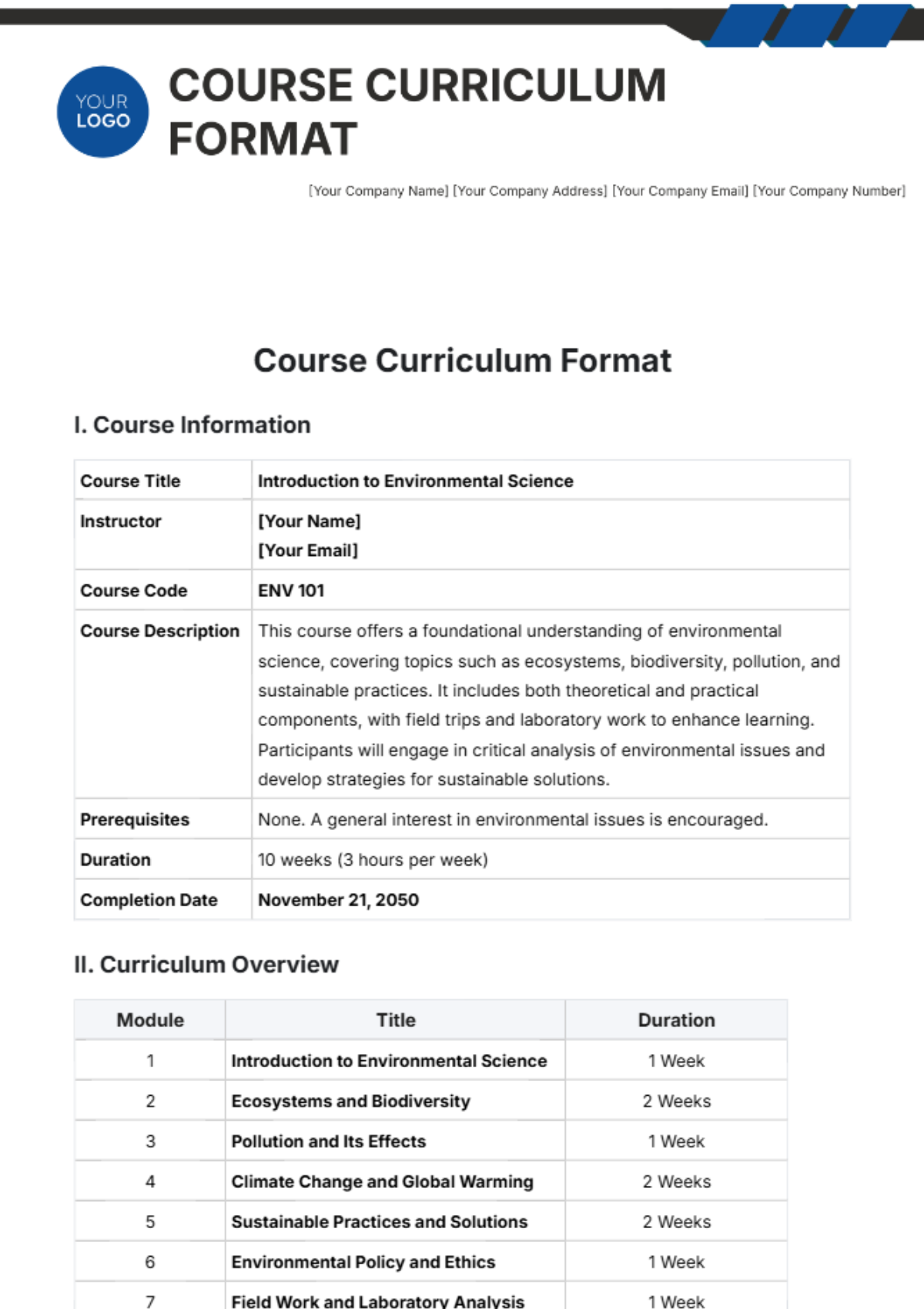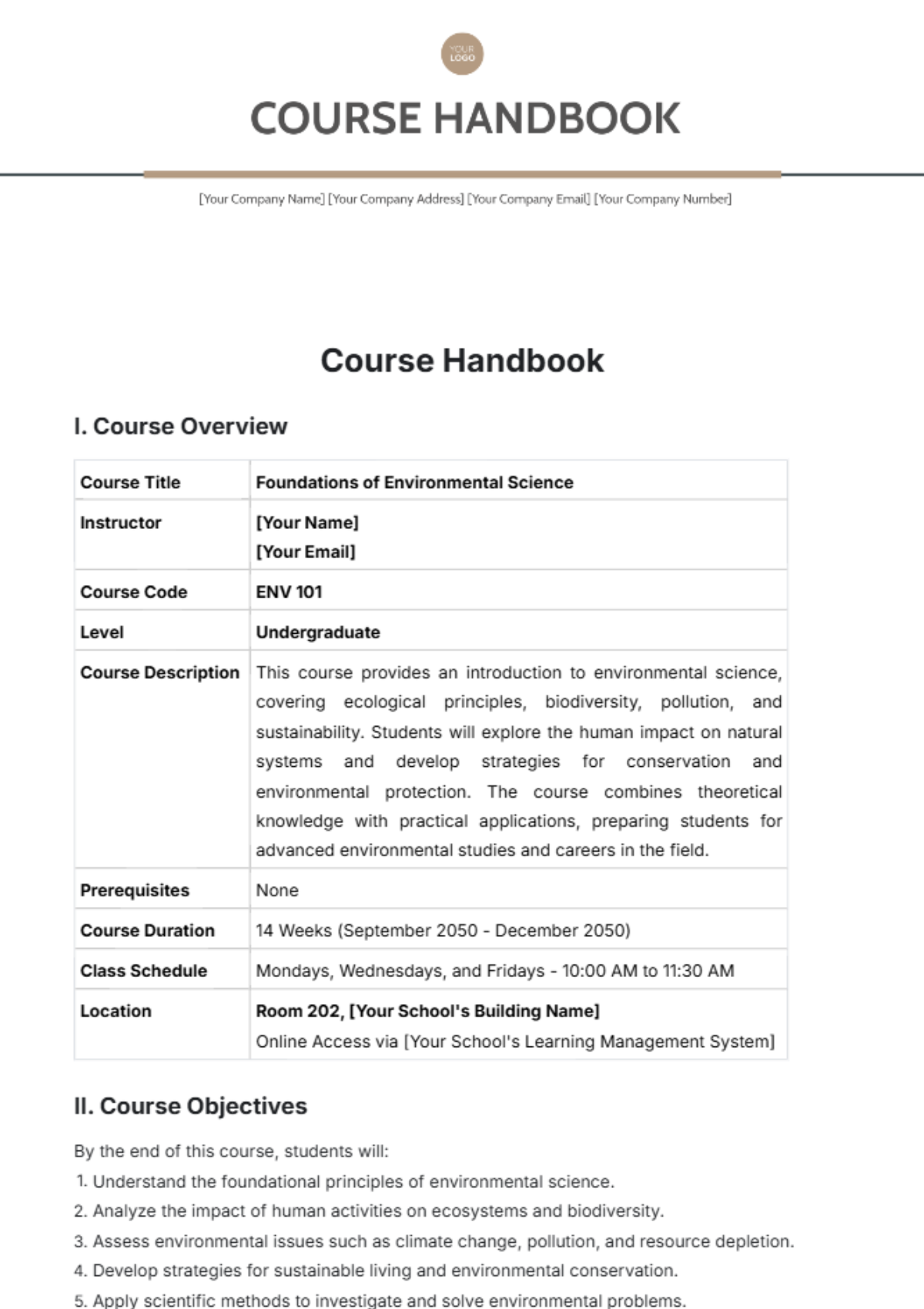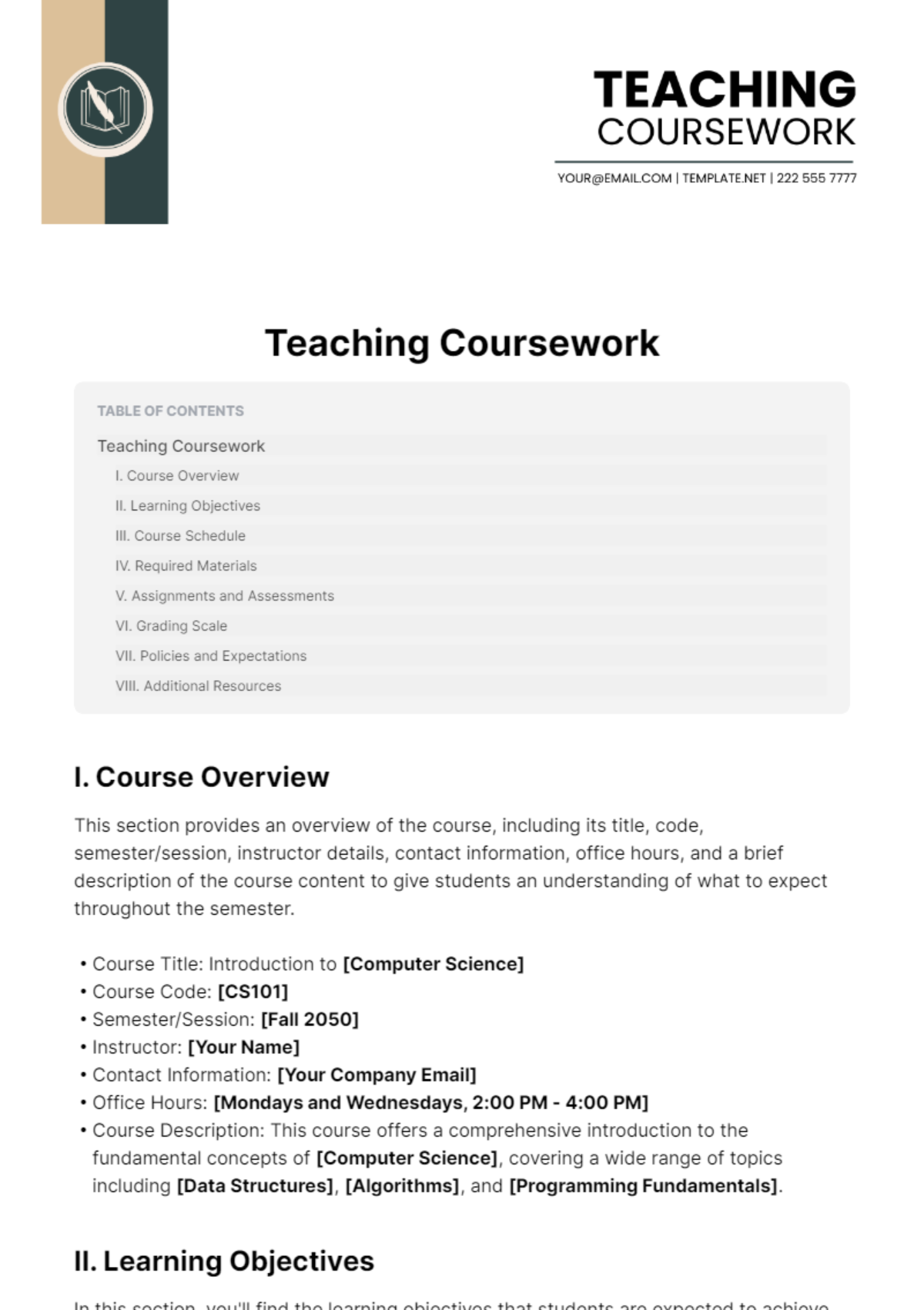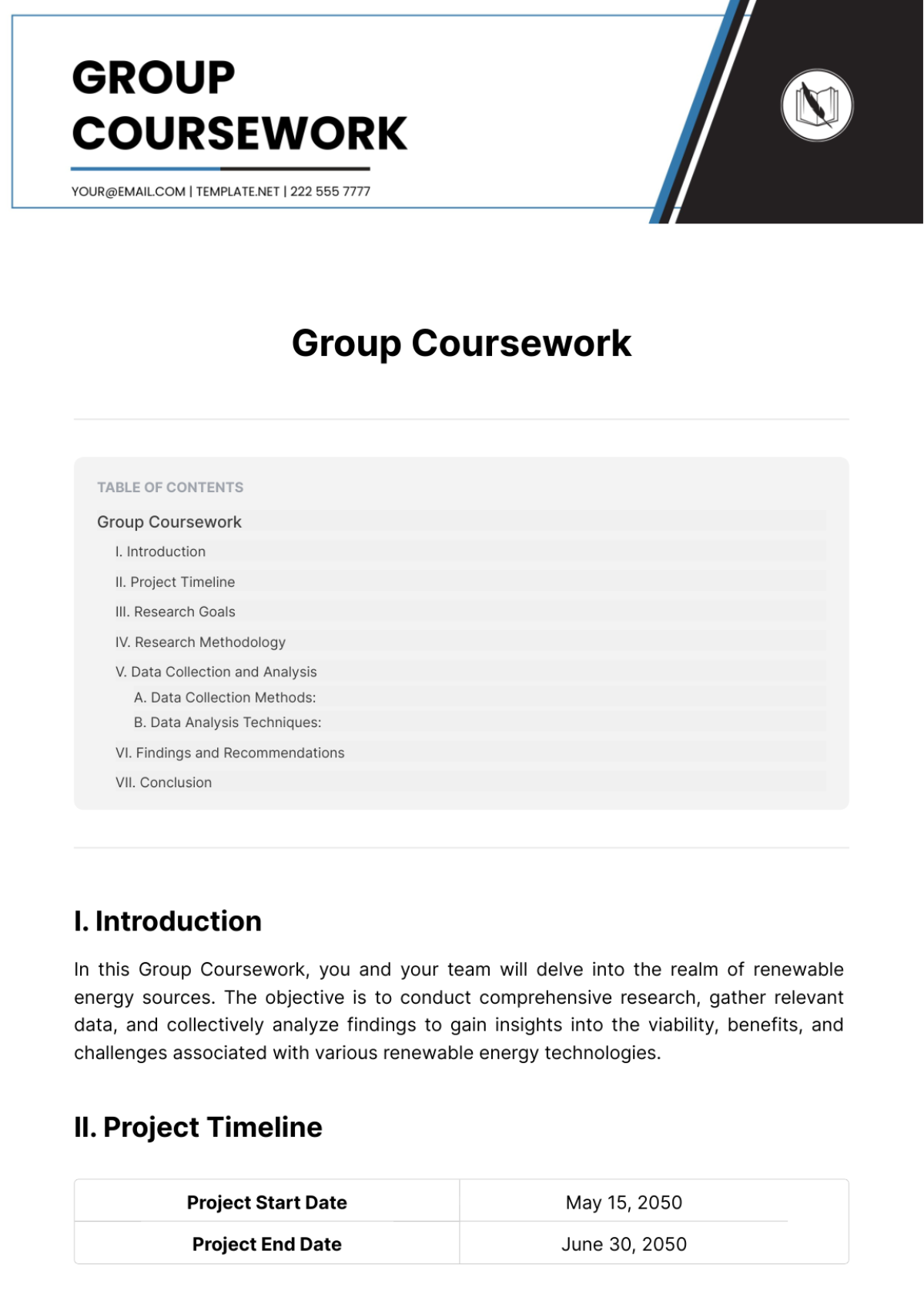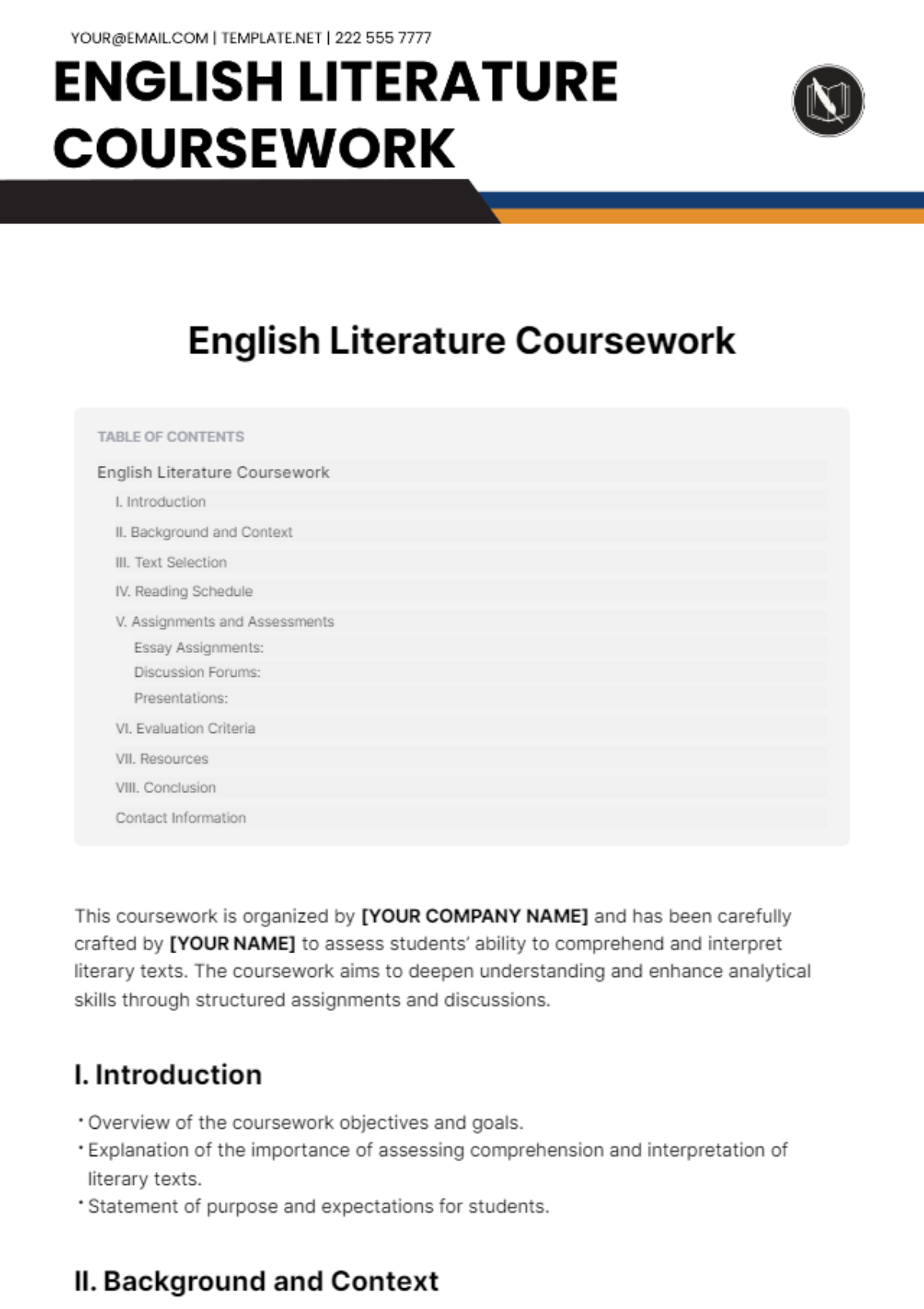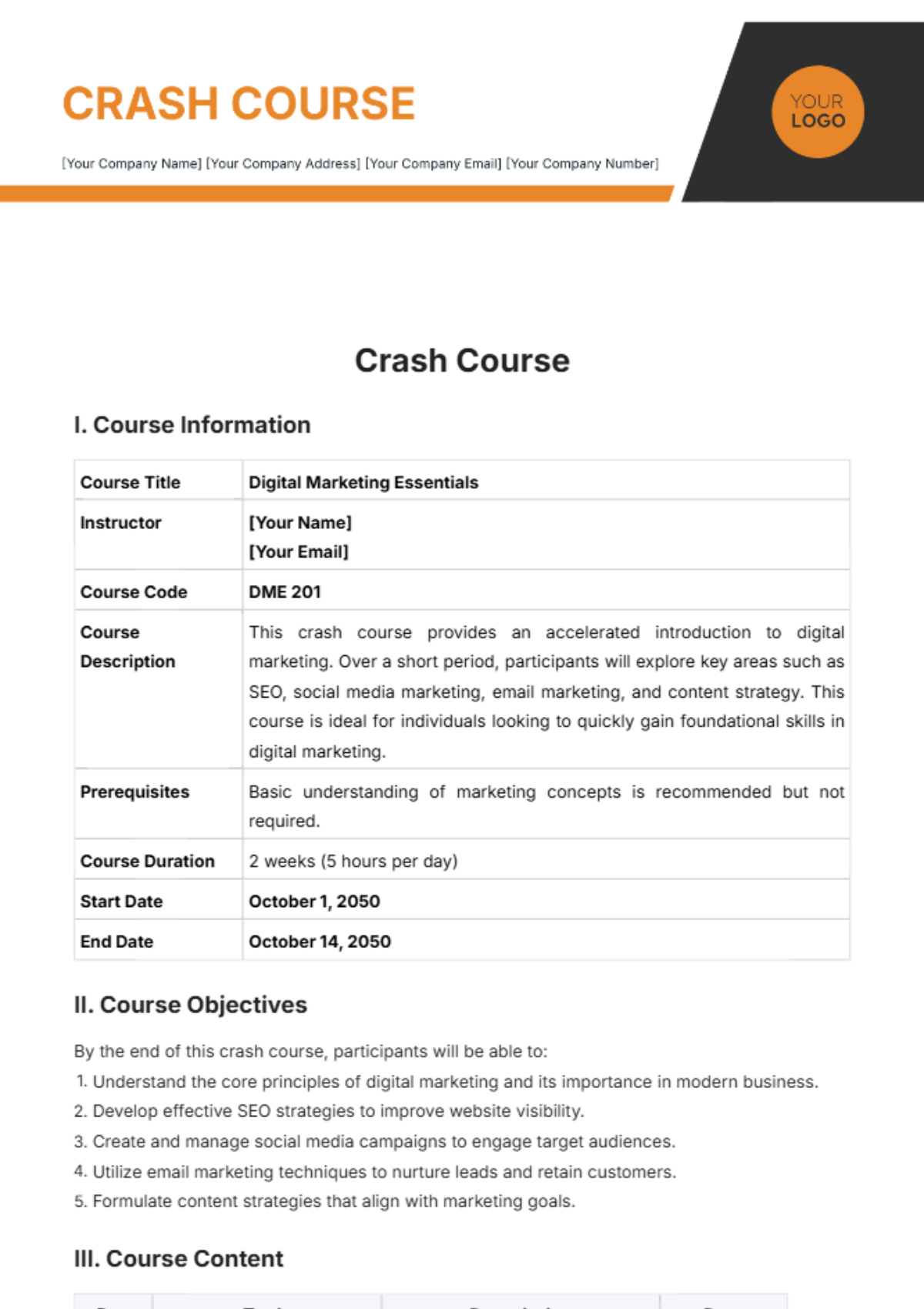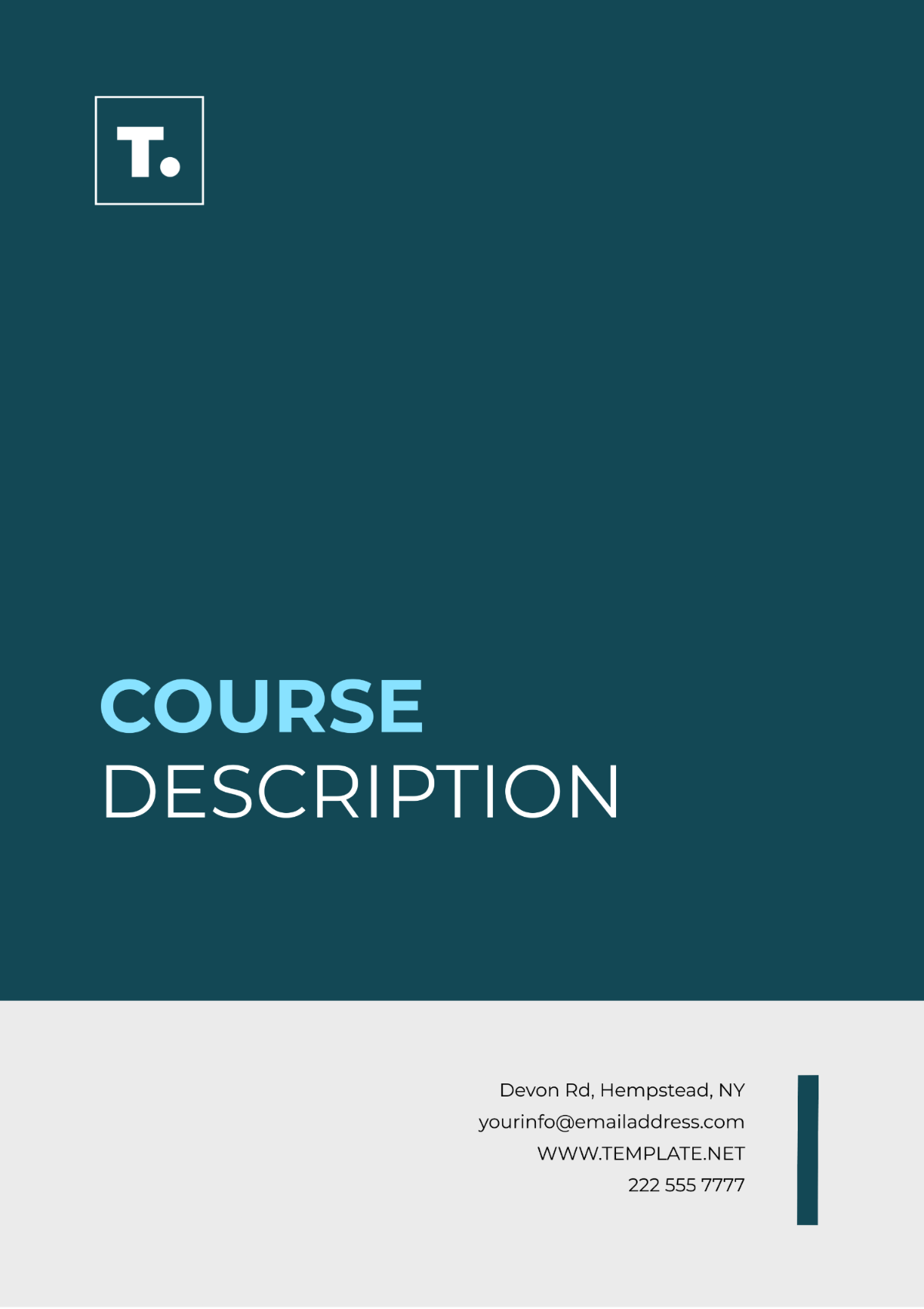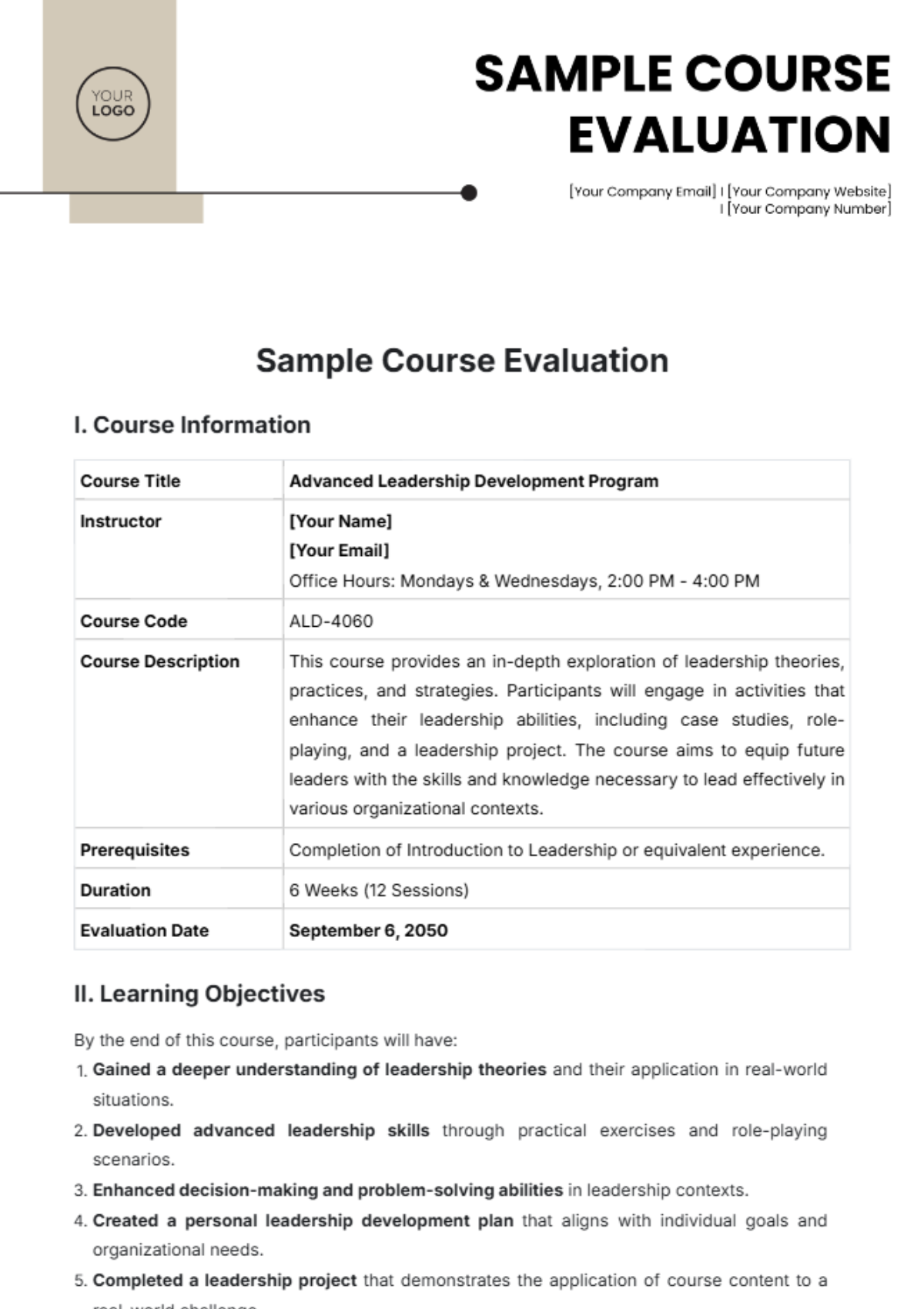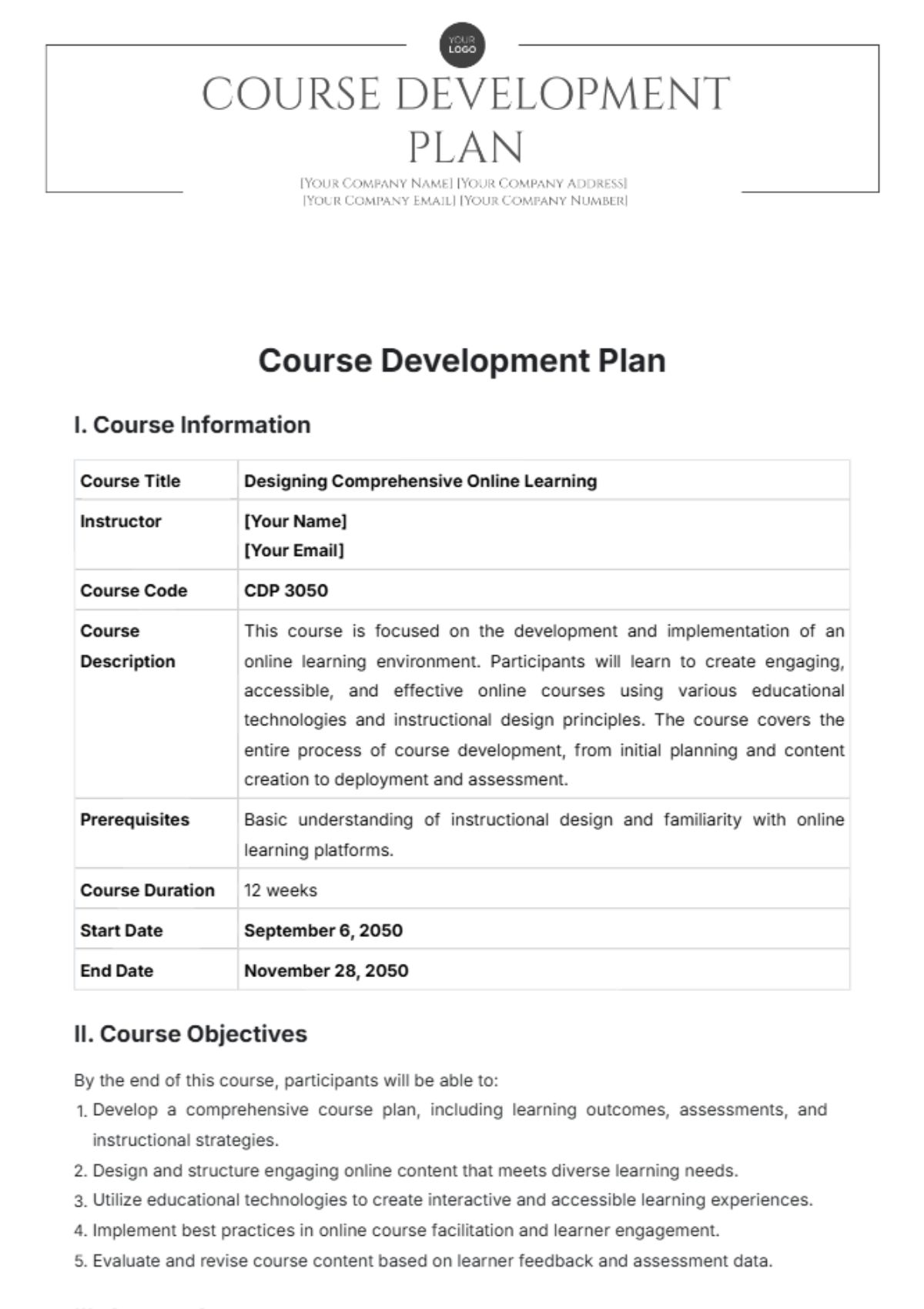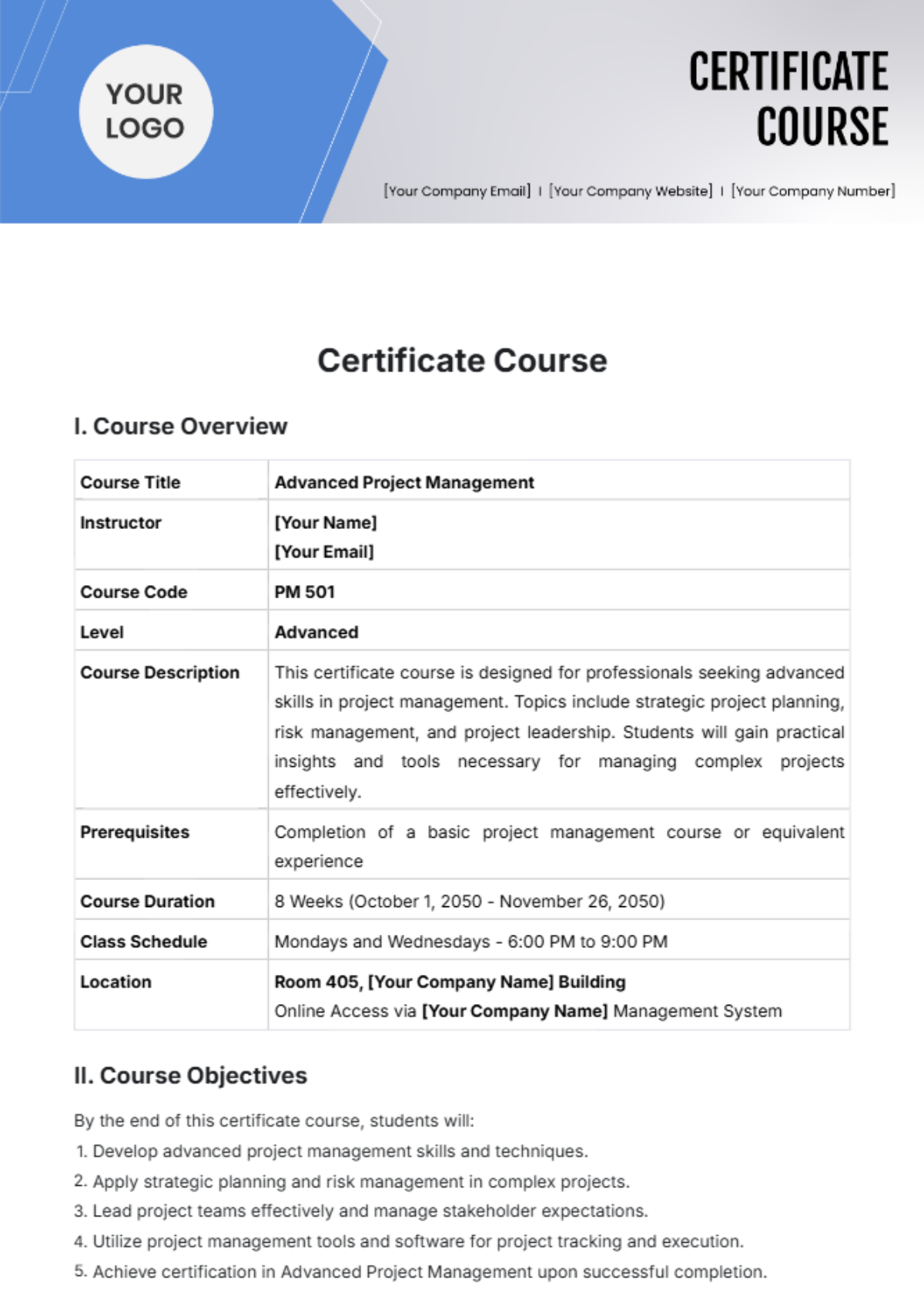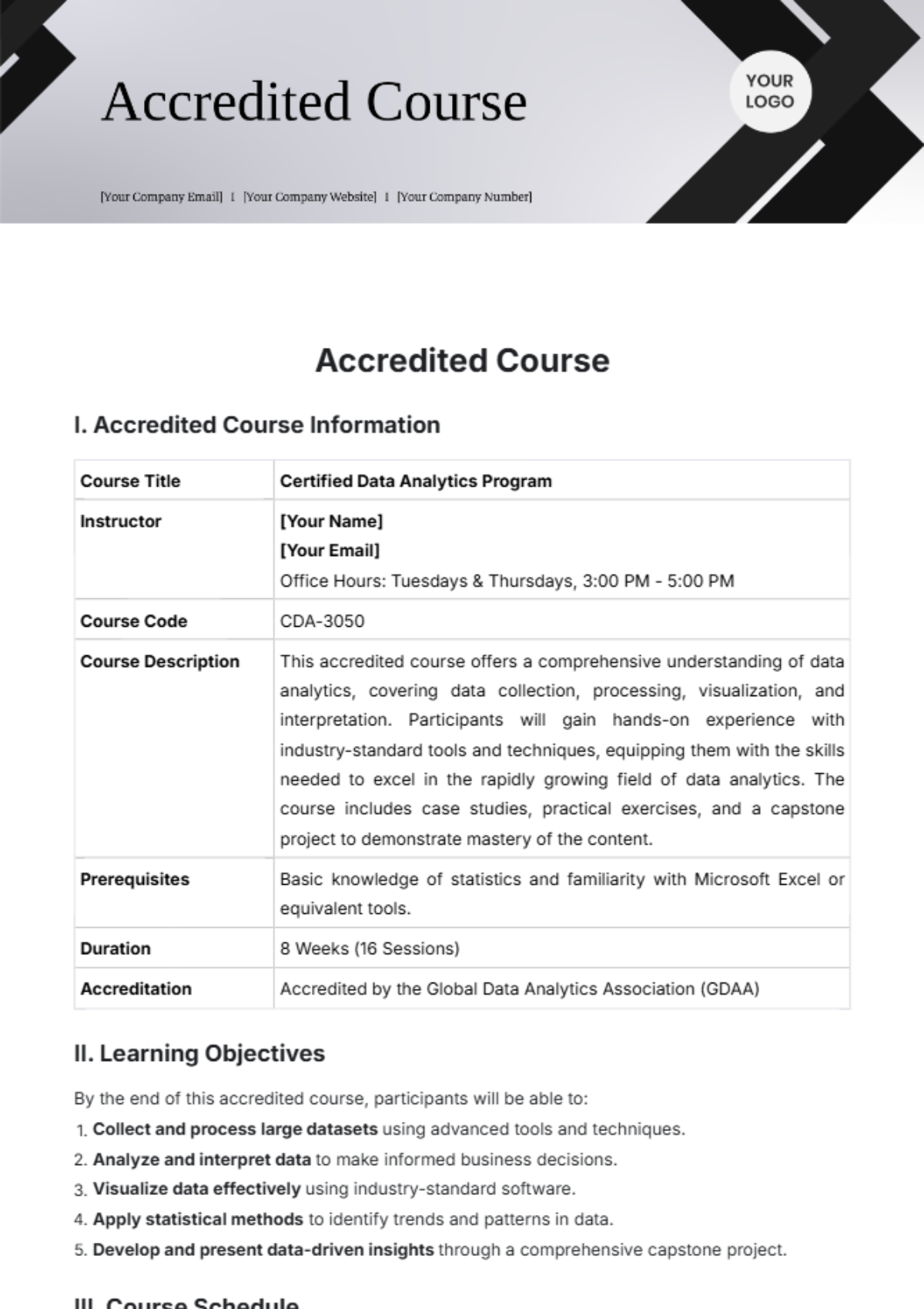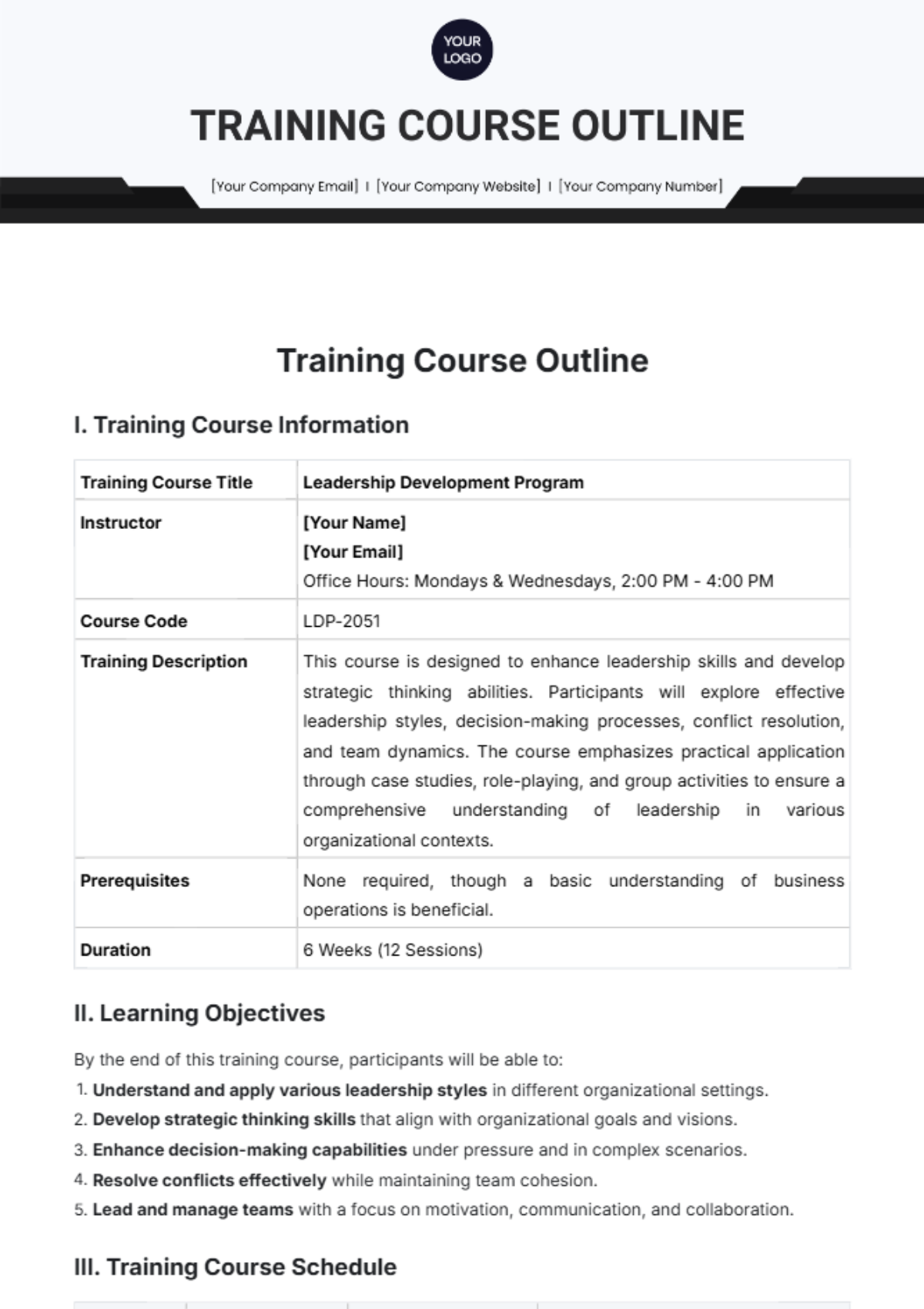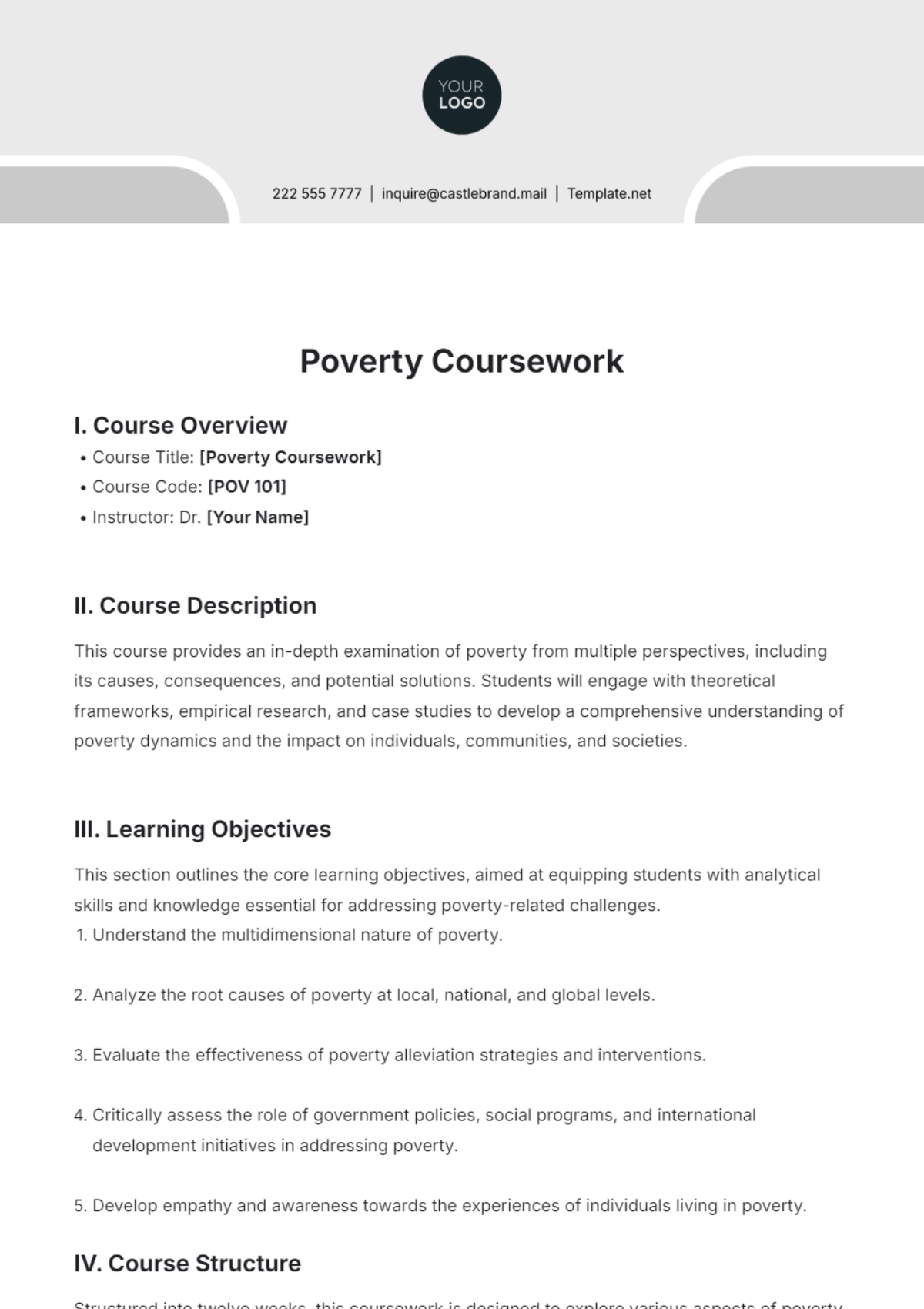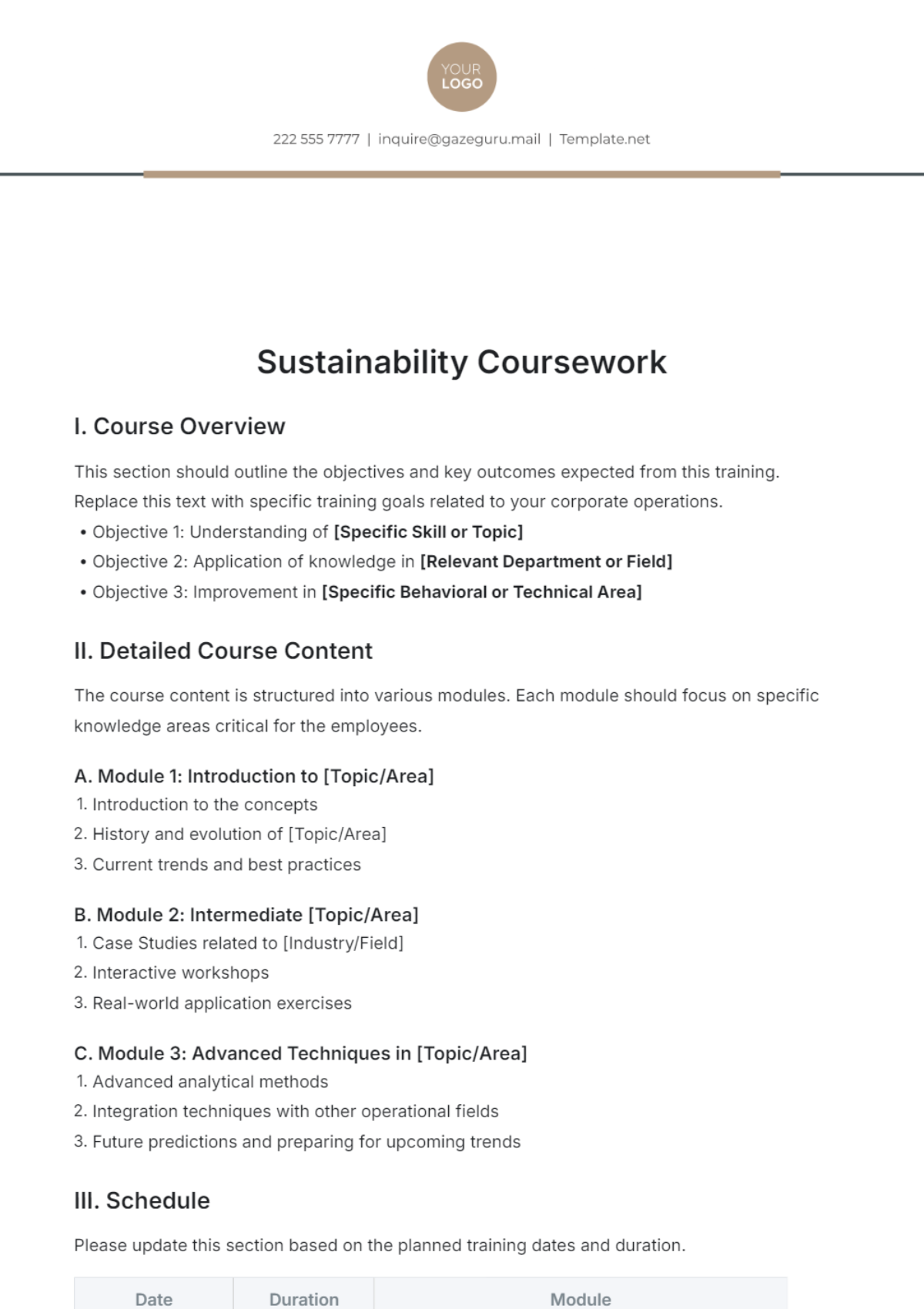E-learning Course Project Specification
Prepared by: [Your Name]
Date: [Date]
I. Introduction
This E-learning Course Project Specification document provides a comprehensive outline of the requirements, goals, and design elements for the development and delivery of the proposed e-learning course. The course aims to deliver high-quality, accessible, and engaging educational content tailored to meet the learning needs of a diverse audience. This specification will serve as a blueprint to guide the project team throughout the development process, ensuring the final course meets the defined objectives and standards.
II. Course Objectives
Understand Key Concepts: Enable learners to grasp key concepts through structured and interactive content.
Apply Knowledge: Provide opportunities for learners to apply theoretical knowledge in practical scenarios.
Develop Skills: Facilitate skill development in specific subject areas through exercises and activities.
Assess Understanding: Evaluate learner understanding and proficiency via assessments and quizzes.
Promote Lifelong Learning: Encourage continued learning and development through additional resources and support.
III. Content Outline
A. Module 1: Introduction to Subject
An overview of the course subject, including its importance and applications.
Lesson 1.1: Background and Context
Lesson 1.2: Key Terminologies
Lesson 1.3: Overview of the Course Structure
B. Module 2: Core Concepts
Introduction to fundamental concepts and principles.
Lesson 2.1: Concept A
Lesson 2.2: Concept B
Lesson 2.3: Concept C
C. Module 3: Advanced Topics
An exploration of advanced topics and recent developments.
Lesson 3.1: Advanced Topic A
Lesson 3.2: Advanced Topic B
Lesson 3.3: Recent Developments
D. Module 4: Practical Applications
Applications of concepts in real-world scenarios.
Lesson 4.1: Case Study A
Lesson 4.2: Case Study B
Lesson 4.3: Hands-on Activities
IV. Instructional Design
The instructional design strategy for this e-learning course includes the following components:
Interactive Content: Use of multimedia elements (videos, infographics, simulations) to enhance learning.
Scaffolded Learning: Gradual increase in complexity to build learner confidence and competence.
Learner Engagement: Interactive elements such as quizzes, discussions, and gamification.
Personalized Learning Paths: Customizable learning experiences based on learner preferences and progress.
Feedback Mechanism: Timely feedback on assessments to guide learner improvement.
V. Technical Requirements
Component | Specification |
|---|---|
Platform | Compatible with major LMS (Learning Management Systems) like Moodle, Blackboard, and Canvas. |
Browsers | Support for modern web browsers (Chrome, Firefox, Safari, Edge). |
Devices | Accessible on desktops, tablets, and mobile devices. |
Connectivity | Stable internet connection with a minimum bandwidth of 5 Mbps. |
Multimedia | Support for video, audio, and interactive content. |
VI. Assessment Methods
A variety of assessment methods will be utilized to evaluate learner progress and understanding:
Quizzes: Short assessments after each module to test comprehension.
Assignments: Practical tasks to apply learned concepts.
Projects: In-depth projects to demonstrate mastery of advanced topics.
Peer Reviews: Opportunities for learners to review and provide feedback on peer submissions.
Final Exam: Comprehensive exam covering all course material.
VII. Timeline and Milestones
Milestone | Deliverable | Completion Date |
|---|---|---|
Project Kickoff | Project plan and team alignment | Week 1 |
Content Development | Draft versions of all modules | Week 6 |
Instructional Design | Interactive elements and multimedia | Week 8 |
Technical Development | Integration with LMS | Week 10 |
Testing and QA | The beta version of the course | Week 12 |
Final Delivery | Launch ready course | Week 14 |
VIII. Budget and Resources
The estimated budget for the e-learning course project is detailed below:
Expense Category | Estimated Cost |
|---|---|
Content Development | $10,000 |
Instructional Design | $5,000 |
Technical Development | $8,000 |
Multimedia Production | $7,000 |
Testing and QA | $3,000 |
Project Management | $4,000 |
Total | $37,000 |
IX. Stakeholders and Roles
The project involves multiple stakeholders, each with defined roles and responsibilities:
Project Manager: Oversees the project, manages the timeline, and coordinates among teams.
Content Experts: Subject matter experts responsible for content creation and accuracy.
Instructional Designers: Design the course structure, learning activities, and assessments.
Technical Developers: Handle the technical aspects, including LMS integration and multimedia development.
QA Testers: Ensure the course functions correctly and meets quality standards.
Learners: End-users who participate in the course and provide feedback.
Stakeholders: Organizational representatives who review progress and approve deliverables.
